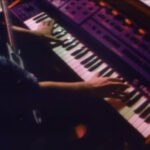Rihanna’s effortless cool and unapologetic attitude have, paradoxically, overshadowed her immense musical talent and relentless work ethic, both of which are evident in her incredible string of hits. Who could have predicted that the young singer from Barbados, who debuted with “Pon de Replay” in 2005, would become the best-selling digital singles artist of all time, surpassing 100 million sales? Or that she would rank among music legends like Elvis Presley, The Beatles, and Madonna in terms of Top 10 hits? In celebration of her remarkable career, let’s delve into her history-making discography and explore some of her best tracks to date.
Loyalty (with Kendrick Lamar) (2017)
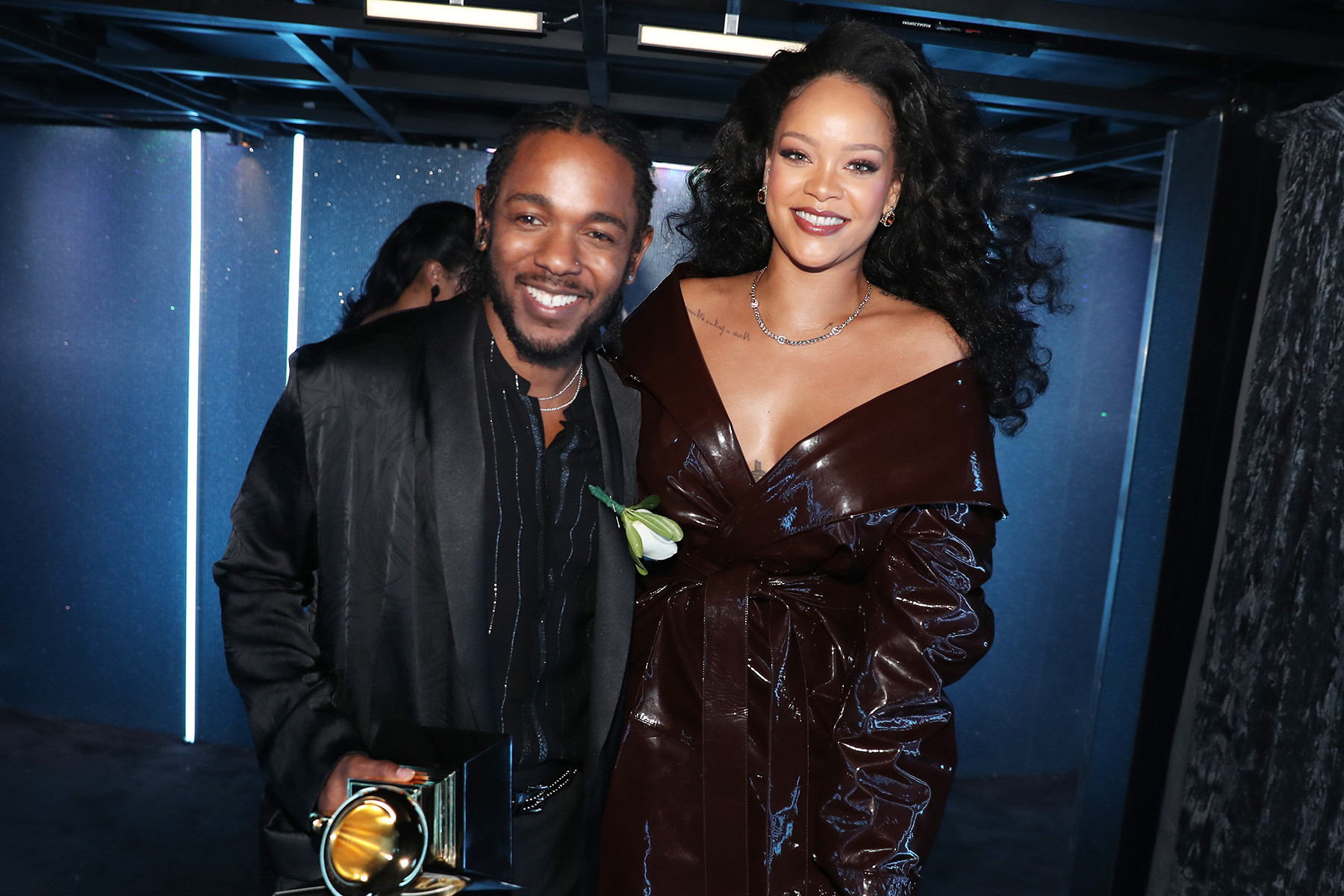 Rihanna and Kendrick Lamar performing onstage, winners of Best Rap/Sung Performance
Rihanna and Kendrick Lamar performing onstage, winners of Best Rap/Sung Performance
Image Credit: Christopher Polk/Getty Images
“Loyalty,” a standout track from Kendrick Lamar’s Damn., is a deliriously enjoyable collaboration that showcases Rihanna’s versatility. She effortlessly matches Kung-Fu Kenny’s energy, delivering melodic vocals with undeniable charisma. While her lyrics might lean towards the playful and nonsensical – “On your pulse like a CD in/Gas in the bitch like it’s premium” – her delivery is so captivating that the lyrical content becomes secondary to the overall vibe. Kendrick Lamar himself praised Rihanna’s artistry, stating, “I love everything about her. Her artistry, how she represents women to not only be themselves but to express themselves the way she expresses herself through music, and how she carries herself.” This track perfectly encapsulates Rihanna’s ability to elevate any song she touches, even with seemingly throwaway lines.
Lemon (with N.E.R.D.) (2018)
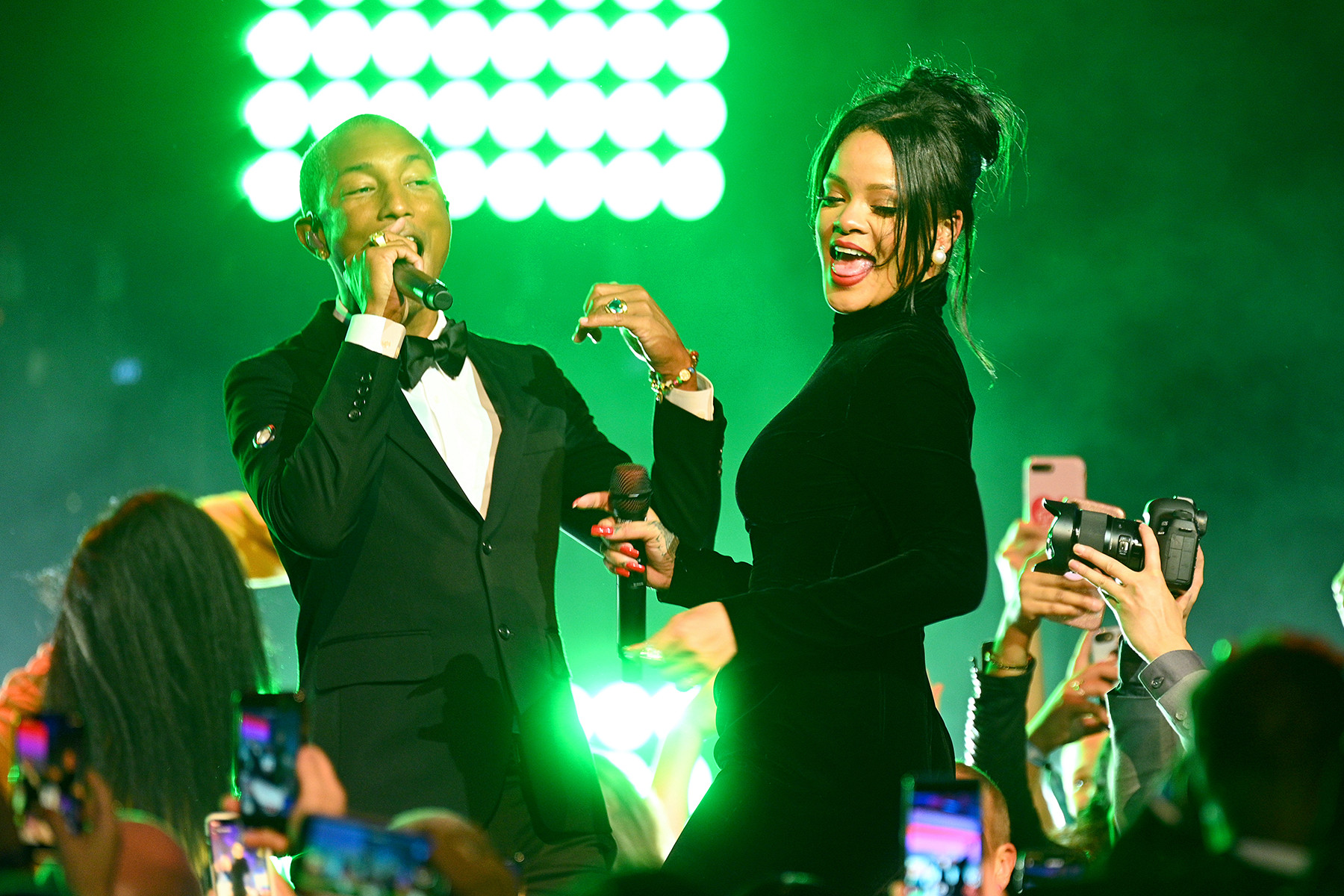 Pharrell Williams and Rihanna performing Lemon on stage
Pharrell Williams and Rihanna performing Lemon on stage
Image Credit: Dave Kotinsky/Getty Images
N.E.R.D.’s comeback single after seven years, “Lemon,” is a politically charged track that blends sparse, bass-heavy grooves with powerful messages. Referencing Gloria Steinem and denouncing hate, the song’s return was significant on its own, especially following Pharrell’s successful run of hits in the 2010s. However, the real surprise was Rihanna’s swaggering guest verse. She delivers a boastful rap packed with clever nods to hip-hop legends, showcasing a cool, laconic flow. Originally intended for Sean “Diddy” Combs, N.E.R.D. wisely kept the track for themselves. “Lemon” marked Rihanna’s 50th Top 40 hit, thirteen years after her initial chart breakthrough, solidifying her enduring relevance in the music industry.
Man Down (2010)
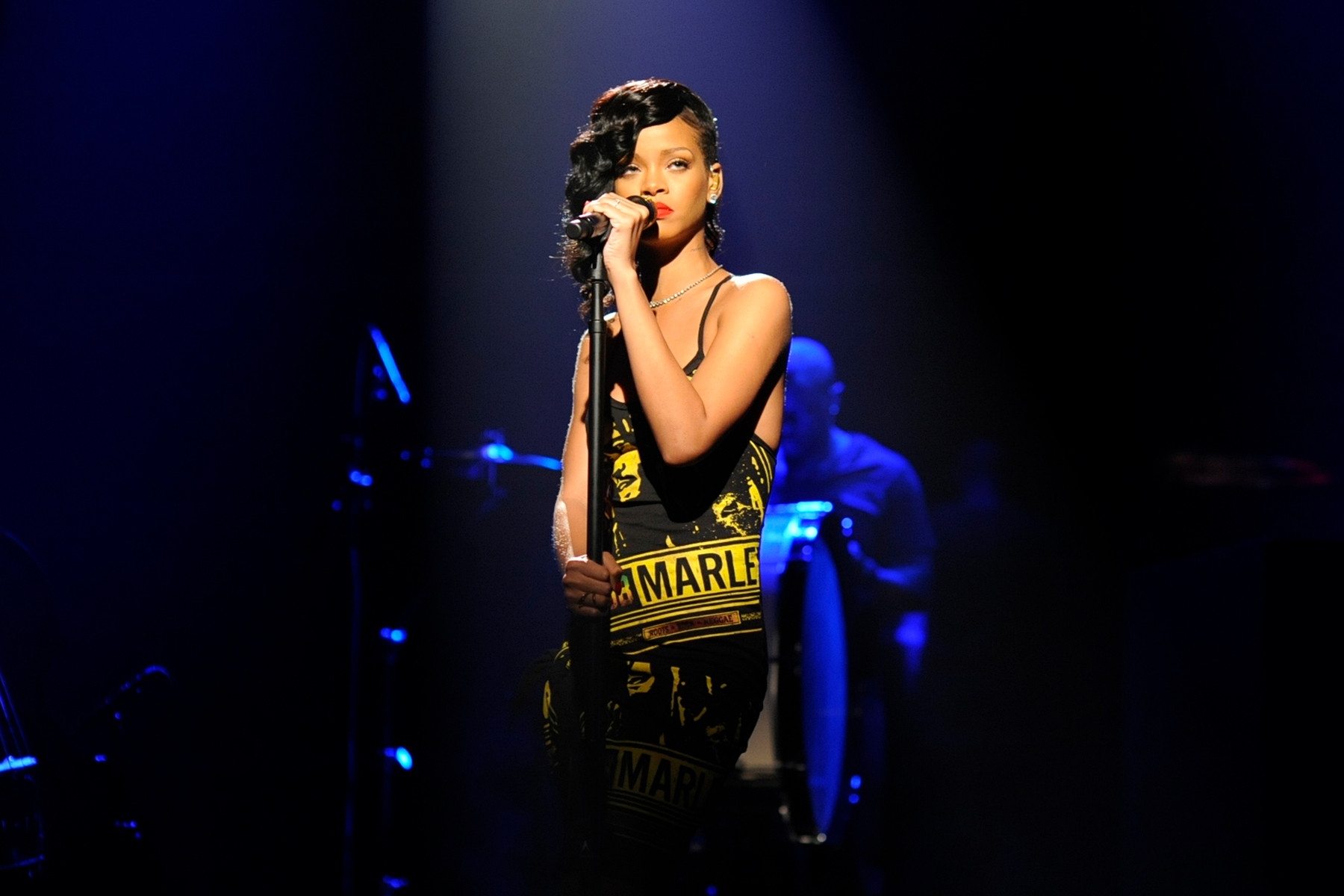 Rihanna performing Man Down on Saturday Night Live
Rihanna performing Man Down on Saturday Night Live
Image Credit: Dana Edelson/NBCU Photo Bank/NBCUniversal/Getty Images
“Man Down” is a Rihanna track that resonated deeply with her R&B fanbase, showcasing a different side of her artistry compared to her mainstream pop hits. In this song, she delves into Jamaican Patois accents more profoundly than in any of her previous singles, creating a powerful female response to reggae dancehall anthems like Chaka Demus & Pliers’ “Murder She Wrote.” While Rihanna described the song to Spin as being “about breaking a man’s heart,” the controversial music video expanded the narrative significantly. It depicted Rihanna as a woman who takes revenge on a man who raped her. Defending the video on BET’s 106 & Park, Rihanna explained, “We needed to go back to why it happened, because obviously she’s not a cold-blooded killer.” This song and its video sparked important conversations about violence, revenge, and female agency.
Take Care (with Drake) (2011)
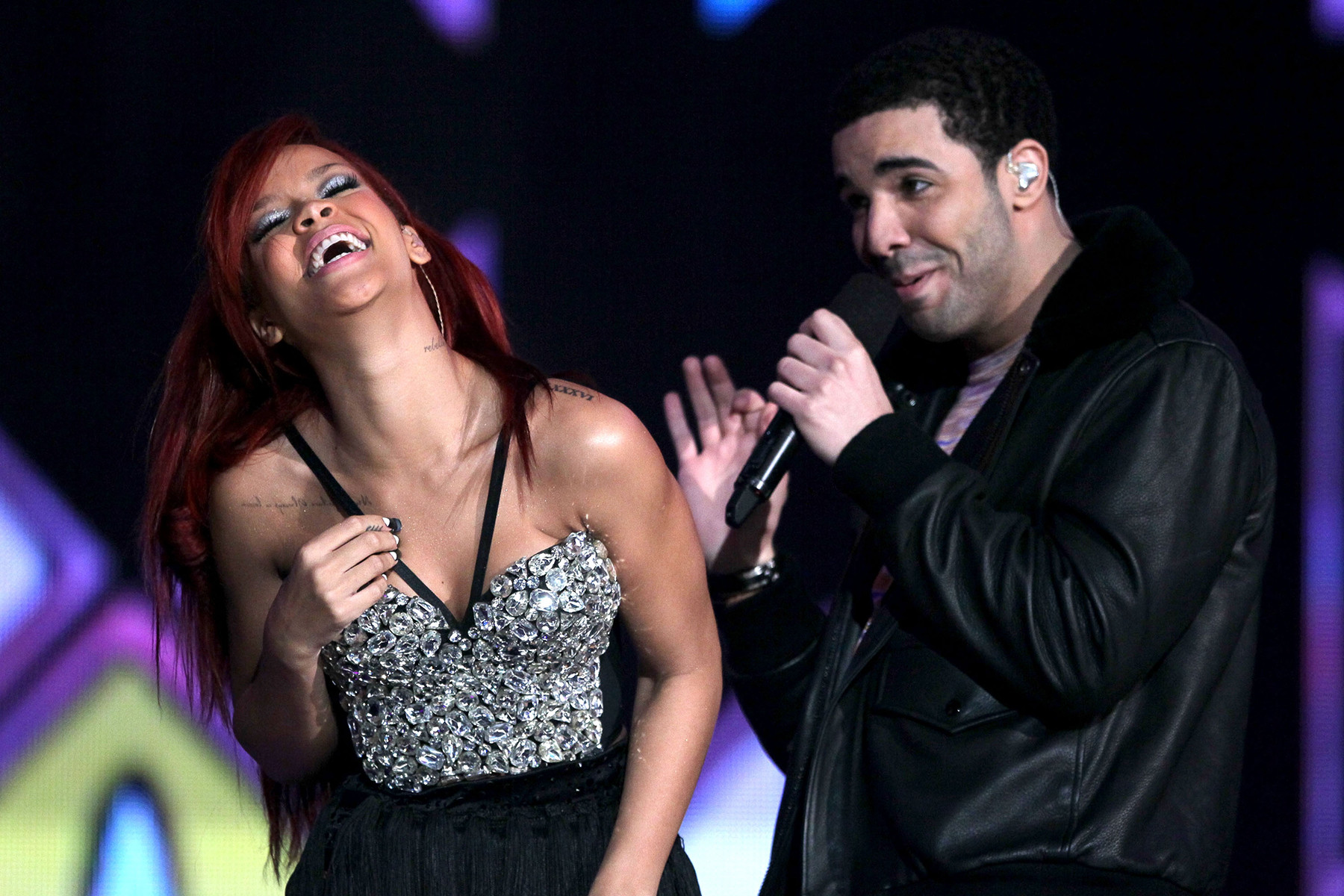 Rihanna and Drake performing together at the NBA All-Star game halftime show
Rihanna and Drake performing together at the NBA All-Star game halftime show
Image Credit: Jeff Gross/Getty Images
“A lot of the energy we bring is genuine,” Drake remarked in 2016 about his long and fruitful collaborative history with Rihanna, and that genuineness is palpable in “Take Care.” Their on-again, off-again relationship seemed firmly “on” when they collaborated on the emotionally raw title track from Drake’s 2011 album. Producer Noah “40” Shebib masterfully sampled a Jamie xx remix of Gil Scott-Heron, crafting a soundscape of delicate guitar sounds over a slow, Balearic beat. However, the true magic lies in the undeniable chemistry between Rihanna and Drake. Their vocal interplay beautifully portrays the vulnerability and emotional complexity of moving past past heartbreaks and navigating a new, uncertain future together.
Wild Thoughts (with DJ Khaled, Bryson Tiller) (2018)
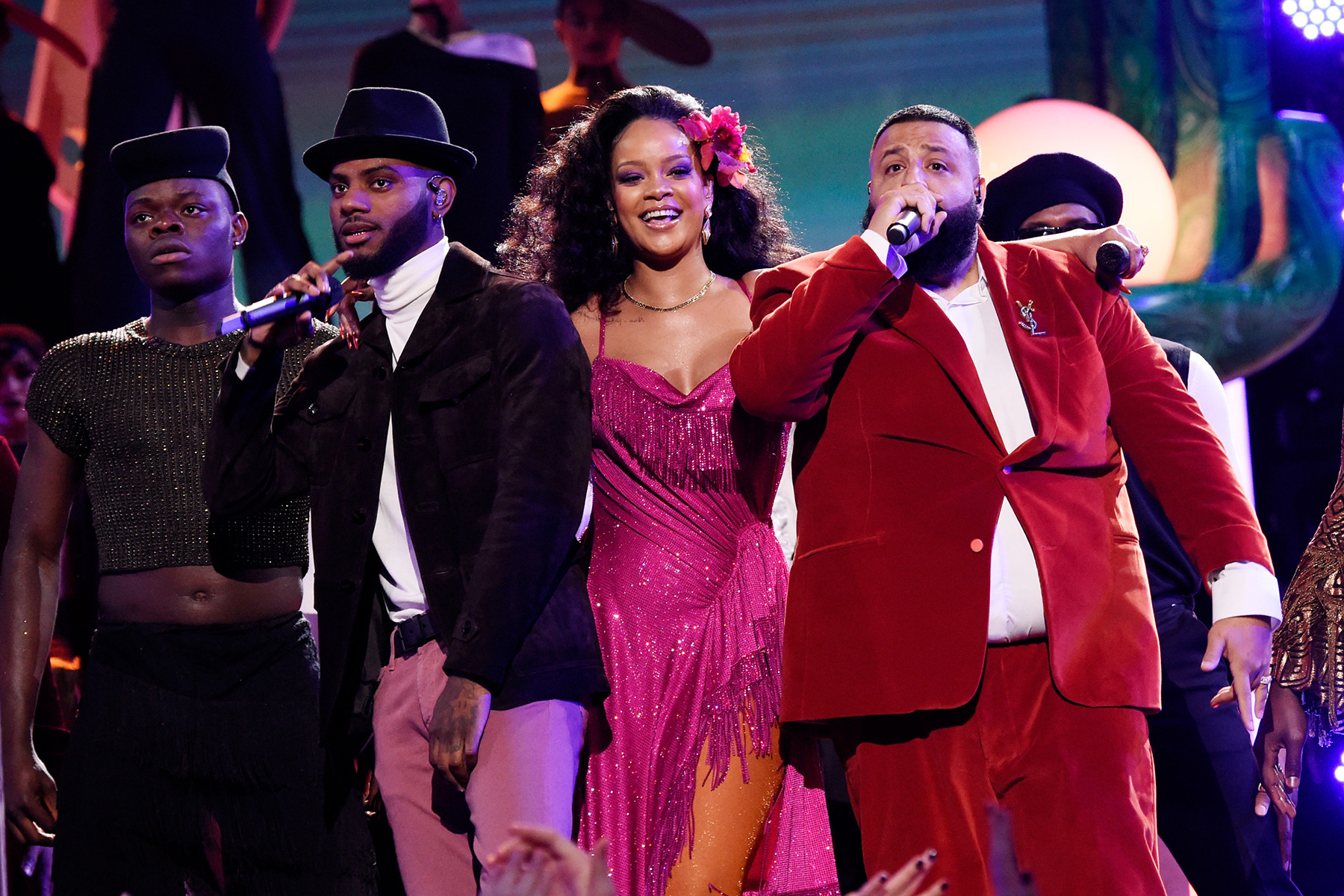 Bryson Tiller, Rihanna, and DJ Khaled performing Wild Thoughts at the Grammy Awards
Bryson Tiller, Rihanna, and DJ Khaled performing Wild Thoughts at the Grammy Awards
Image Credit: Kevin Mazur/Getty Images for NARAS
“Wild Thoughts” is a stellar pop hit packed with cultural references and musical history. DJ Khaled and songwriter PartyNextDoor sampled a 90s collaboration between Wyclef Jean and Carlos Santana to create this sultry, Latin-infused track. Rihanna, alongside trap-soul singer Bryson Tiller, unsurprisingly steals the spotlight with her old-school New York hip-hop flow, complete with a playful reference to Joe Namath’s Super Bowl-winning ’68 Jets. At the 2018 Grammys, the trio amplified the Big Apple connection with a performance featuring sets and costumes reminiscent of the Harlem Renaissance. DJ Khaled recounted Facetiming with Rihanna during her vocal recording, stating, “She was singing the record on the phone and I was dancing on the phone, she was dancing and we was going back and forth.” Soon after, the entire world was dancing along to this infectious hit.
Hate That I Love You (feat. Ne-Yo) (2007)
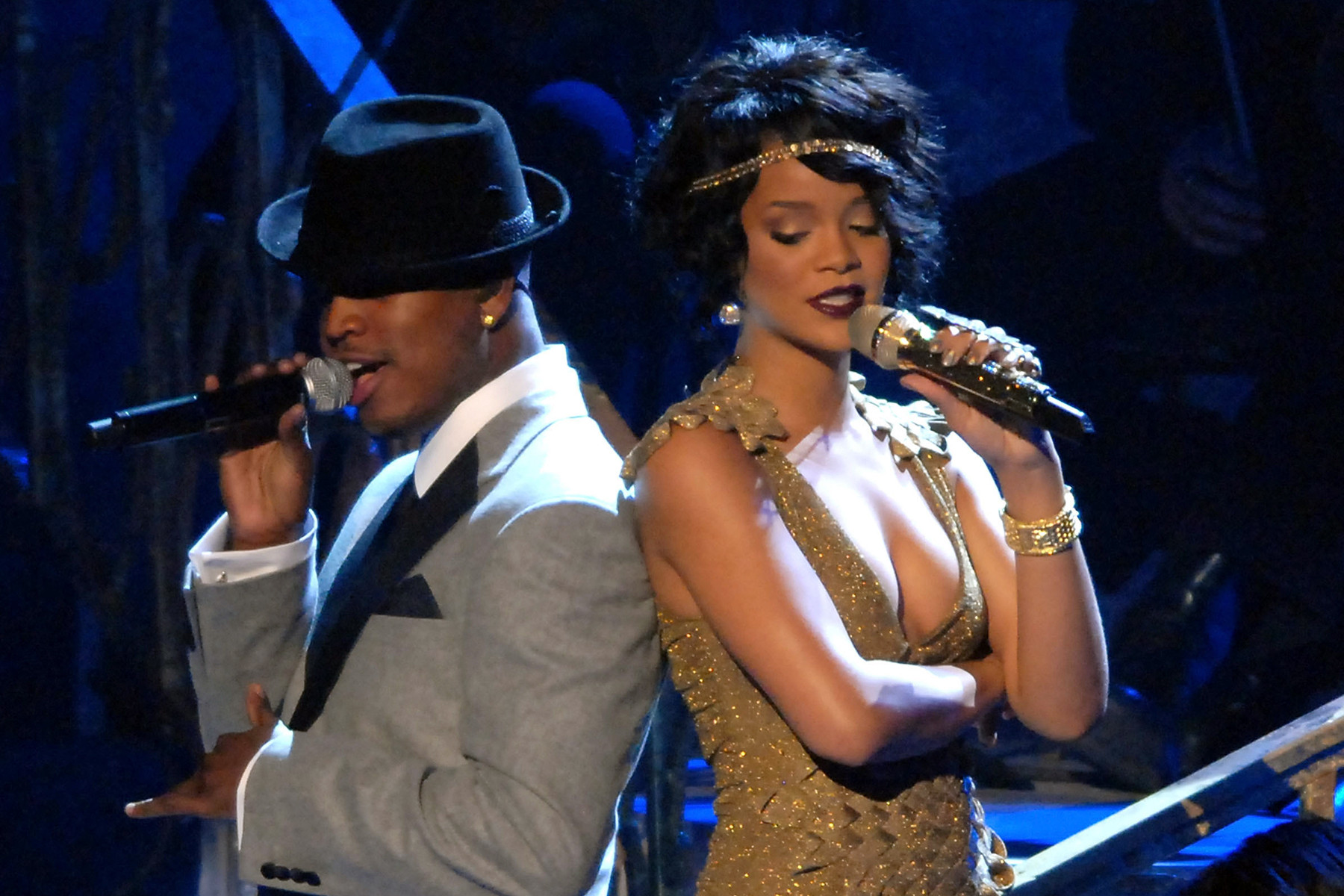 Ne-Yo and Rihanna performing Hate That I Love You at the American Music Awards
Ne-Yo and Rihanna performing Hate That I Love You at the American Music Awards
Image Credit: Michael Caulfield/WireImage
Ne-Yo, who co-wrote Rihanna’s 2006 ballad “Unfaithful” and was lauded as a “genius” by the then-19-year-old Rihanna, contributed to three tracks on her groundbreaking 2007 album Good Girl Gone Bad. Among them, “Hate That I Love You” stands out as a Grammy-nominated gem, updating the classic soul duet for the mid-2000s R&B scene. It blends breezy guitars with bittersweet harmonies to create a compelling sonic landscape. Ne-Yo explained to Vibe in 2008, “The best way to express an emotion like love is through storytelling… It makes it more, ‘I can relate to this character in this song, because I’ve been through something similar.'” This song captures the complex emotions of love and hate intertwined, delivered with both vulnerability and strength by Rihanna and Ne-Yo.
Where Have You Been (2011)
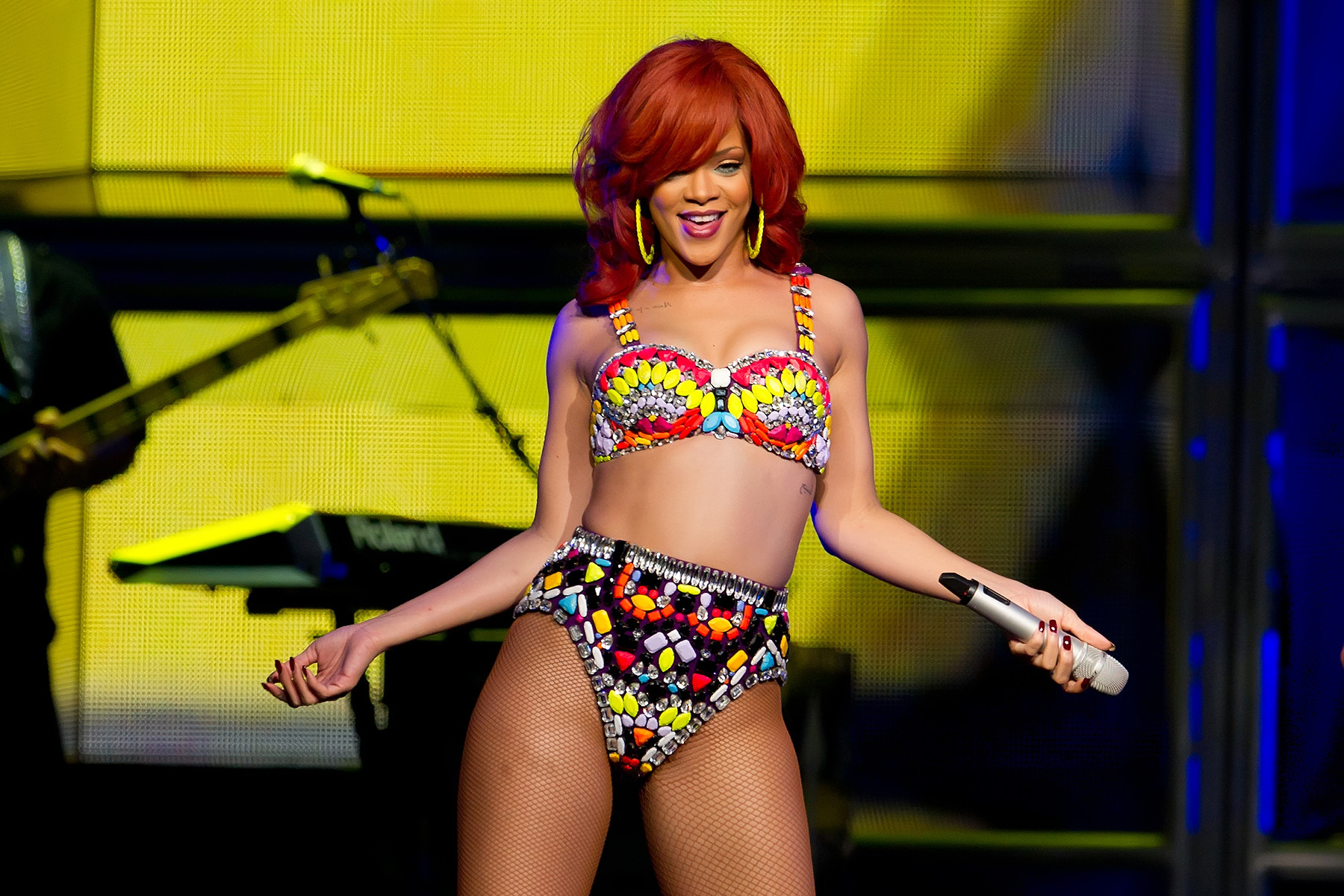 Rihanna performing Where Have You Been at the Wells Fargo Center
Rihanna performing Where Have You Been at the Wells Fargo Center
Image Credit: Gilbert Carrasquillo/Getty Images
While Geoff Mack’s 1959 country song “I’ve Been Everywhere” has been covered by artists like Johnny Cash and Kacey Musgraves, its interpolation into Rihanna’s Talk That Talk track “Where Have You Been” is arguably its most unexpected and electrifying appearance. Crafted by Ester Dean, Dr. Luke, Cirkut, and Calvin Harris (who also masterminded “We Found Love”), this beat-heavy track is driven by Rihanna’s urgent vocals. Her voice soars as the song builds, culminating in a fast-paced, addictive refrain. The lyrics express a desperate plea for a lover’s presence, amplified by the driving beat and Rihanna’s dynamic performance.
Pour It Up (2012)
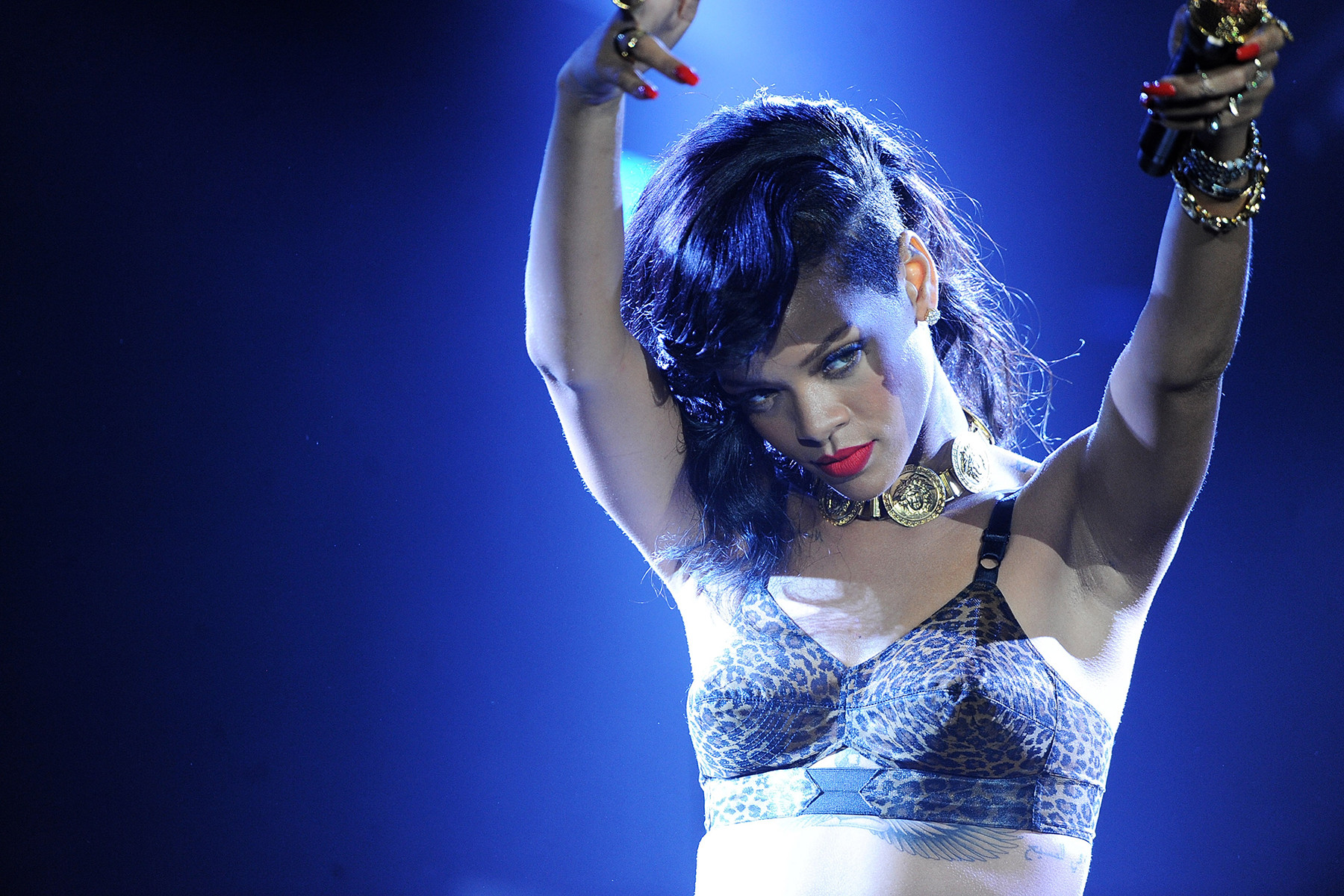 Rihanna performing Pour It Up during her 777 tour in London
Rihanna performing Pour It Up during her 777 tour in London
Image Credit: Dave J Hogan/Getty Images
Produced by Mike Will Made It, “Pour It Up” showcases Rihanna in her “boss” persona, confidently commanding attention in a strip club setting, throwing dollar bills at dancers. “Money make the world go round/Bandz make your girl go down,” she raps, playfully subverting traditional gender roles. As with many of Rihanna’s songs, the music video further enhances the song’s concept, creating a captivating fantasy. In the “Pour It Up” video, she embodies both the stripper and the client, moving from working a pole to twerking on a golden throne, all while smoking a cigar. This track is a bold statement of female empowerment and financial independence, delivered with Rihanna’s signature swagger.
Take a Bow (2008)
 Rihanna performing Take a Bow on stage
Rihanna performing Take a Bow on stage
Image Credit: Stephen Lovekin/Getty Images
Rihanna’s 2007 album Good Girl Gone Bad was a monumental success, fueled by hits like “Umbrella,” “Shut Up and Drive,” and “Don’t Stop The Music.” A year later, it was re-released as Good Girl Gone Bad: Reloaded, featuring three new tracks, including “Take a Bow.” Written by the Norwegian duo Stargate and Ne-Yo, the same team behind Beyoncé’s “Irreplaceable,” “Take a Bow” proved to be another gold strike. It made Billboard chart history by jumping from Number 53 to Number One in a single week, a clear indication of Rihanna’s unstoppable trajectory and lasting power in pop music.
Rude Boy (2009)
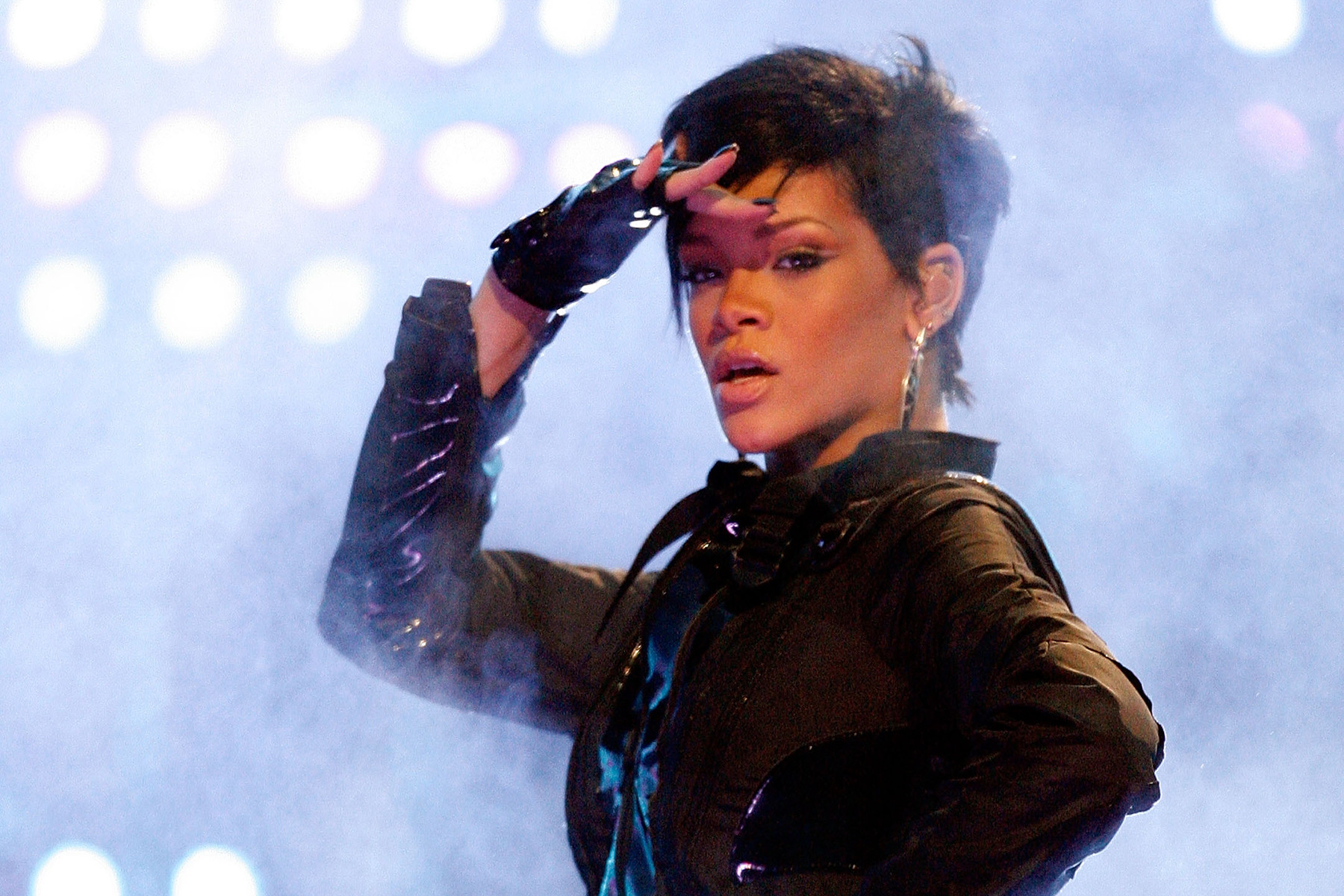 Rihanna performing Rude Boy at the NFL Pepsi Smash Super Bowl Concert
Rihanna performing Rude Boy at the NFL Pepsi Smash Super Bowl Concert
Image Credit: Kevin C. Cox/Getty Images for NFL
Following the massive success of Good Girl Gone Bad, there was significant pressure on Rihanna’s 2009 follow-up, Rated R. Initial singles “Russian Roulette,” “Hard,” and “Wait Your Turn” didn’t immediately reach “Umbrella”-level success, creating a sense of anticipation. However, in February 2010, “Rude Boy” arrived and changed the game. This dancehall-infused track, crafted by a team of songwriters including Stargate, Ester Dean, and Rihanna herself, quickly ascended to Number One on the Hot 100, holding the top spot for five weeks. “Rude Boy” became the defining hit of the Rated R era, solidifying Rihanna’s ability to blend genres and dominate the charts.
Kiss It Better (2016)
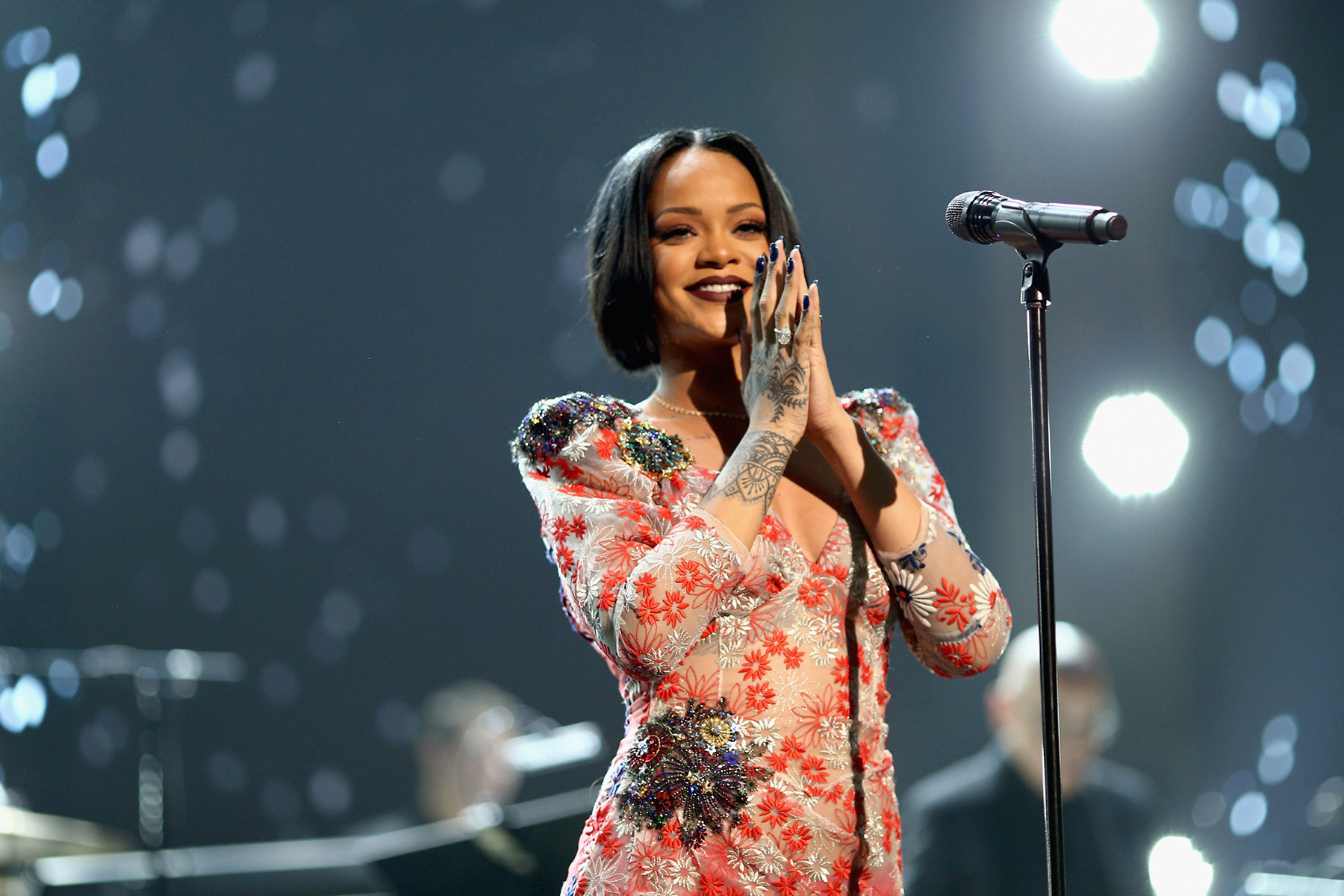 Rihanna performing Kiss It Better at the MusiCares Person of the Year event honoring Lionel Richie
Rihanna performing Kiss It Better at the MusiCares Person of the Year event honoring Lionel Richie
Image Credit: Christopher Polk/Getty Images for NARAS
In late 2014, Rihanna teased her eighth album Anti by posting a video of her guitarist Nuno Bettencourt laying down a solo over a recording of her singing “kiss it, kiss it better, baby.” This sparked anticipation for the album, which wouldn’t arrive for over a year. “Kiss It Better,” co-written by Rihanna with Jeff Bhasker, Glass John, and Teddy “Natalia Kills” Sinclair, was a standout track from Anti. Bettencourt’s power-ballad-esque guitar work intertwines with dreamy, synth-driven R&B, while Rihanna delivers a raw and emotional ultimatum to a lover. This song showcased a more vulnerable and musically nuanced side of Rihanna’s artistry.
Disturbia (2008)
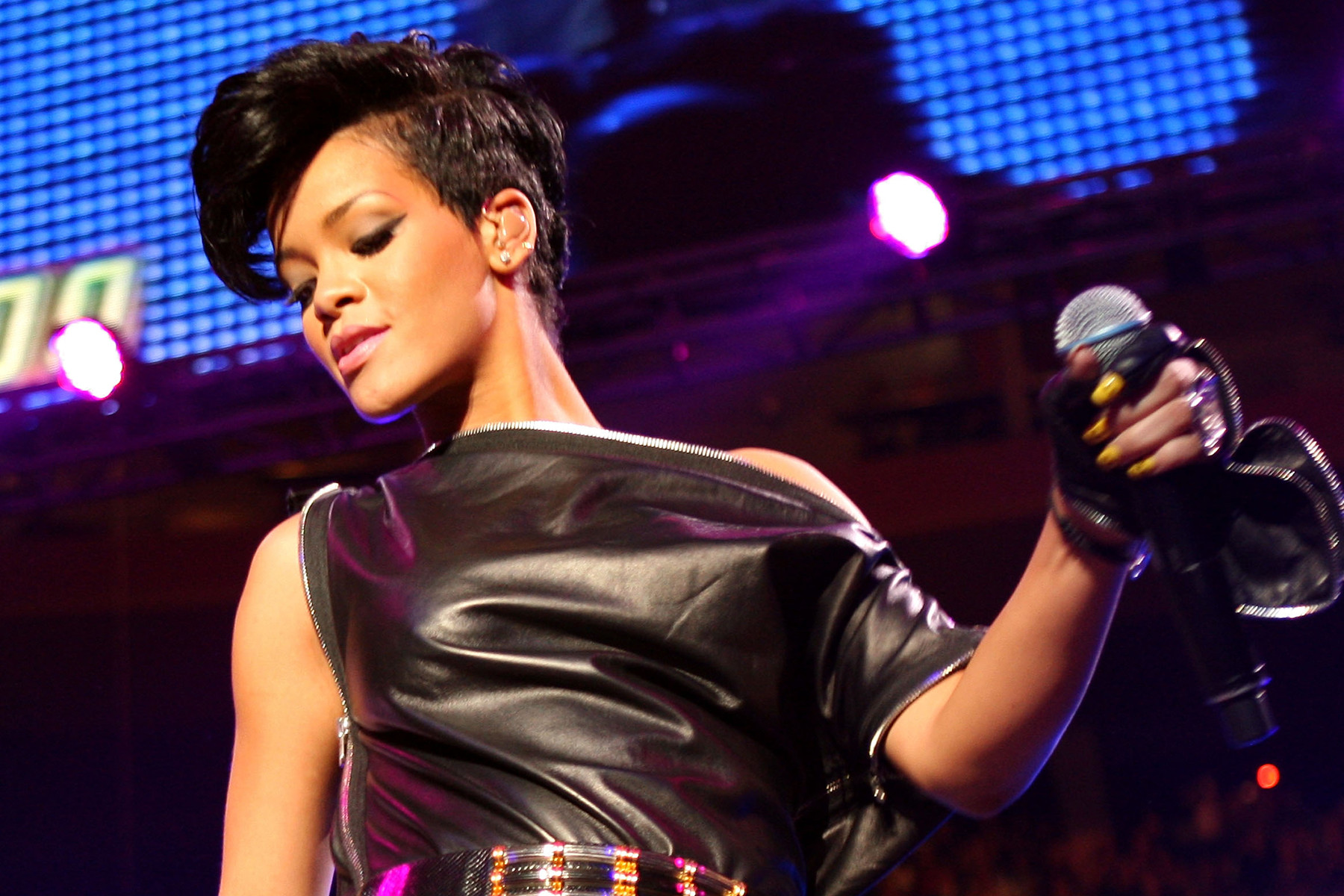 Rihanna performing Disturbia at Z100's Jingle Ball
Rihanna performing Disturbia at Z100's Jingle Ball
Image Credit: Scott Gries/Getty Images
Rihanna embraced a darker, goth-inspired aesthetic with her summer-of-2008 hit “Disturbia,” foreshadowing her willingness to explore twisted themes in her music. The lyrics, reminiscent of early Black Sabbath, delve into paranoia and mental unease, yet the song is built on a danceable beat perfect for the club. Over the eerie, disco-influenced chant of “bum-bum be-dum-bum-bum,” Rihanna sings about feeling consumed by hallucinations, questioning, “What’s wrong with me? Why do I feel like this?” The chorus transforms her into the protagonist of her own horror film: “Am I scaring you tonight?/Your mind is in Disturbia!” Written by then-boyfriend Chris Brown before his public acts of violence, “Disturbia” became one of Rihanna’s most forward-thinking early hits, paving the way for her exploration of darker themes.
S&M (2010)
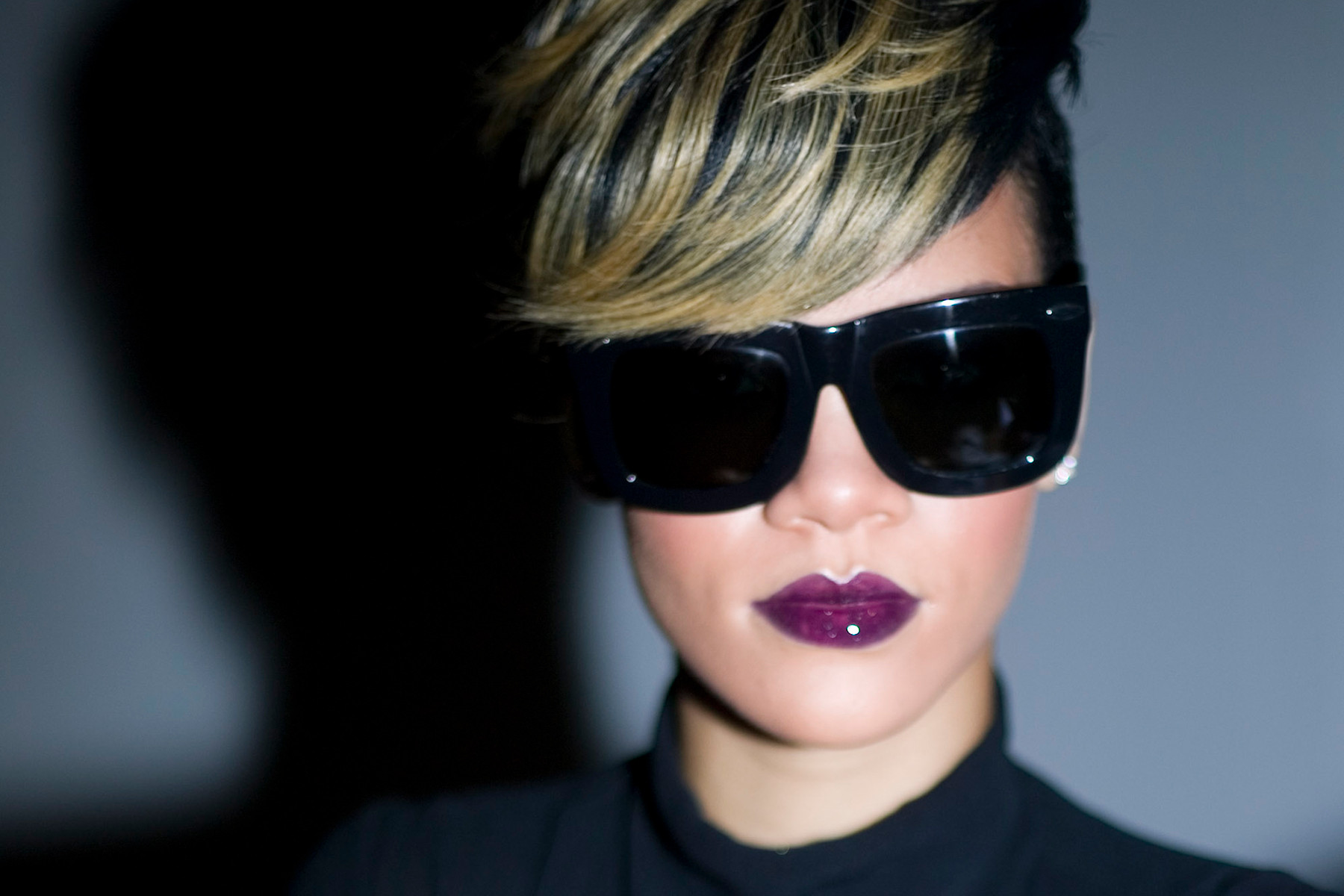 Rihanna attending the Gareth Pugh show during Paris Fashion Week
Rihanna attending the Gareth Pugh show during Paris Fashion Week
Image Credit: Antonio de Moraes Barros Filho/WireImage
“Sticks and stones may break my bones but chains and whips excite me,” Rihanna sings playfully on her Number One hit “S&M.” Released shortly after the highly publicized assault by her former boyfriend Chris Brown, “S&M” is a defiant declaration of agency in the face of intense public scrutiny. “People are going to talk about you, you can’t stop that. You just have to be super-strong and know who you are so that stuff just bounces off,” she told Spin. The song’s overall message is clear: Rihanna does what she wants, and no one can stop her. “It’s so good being bad,” she coos, “There’s no way I’m turning back.”
What’s My Name (feat. Drake) (2010)
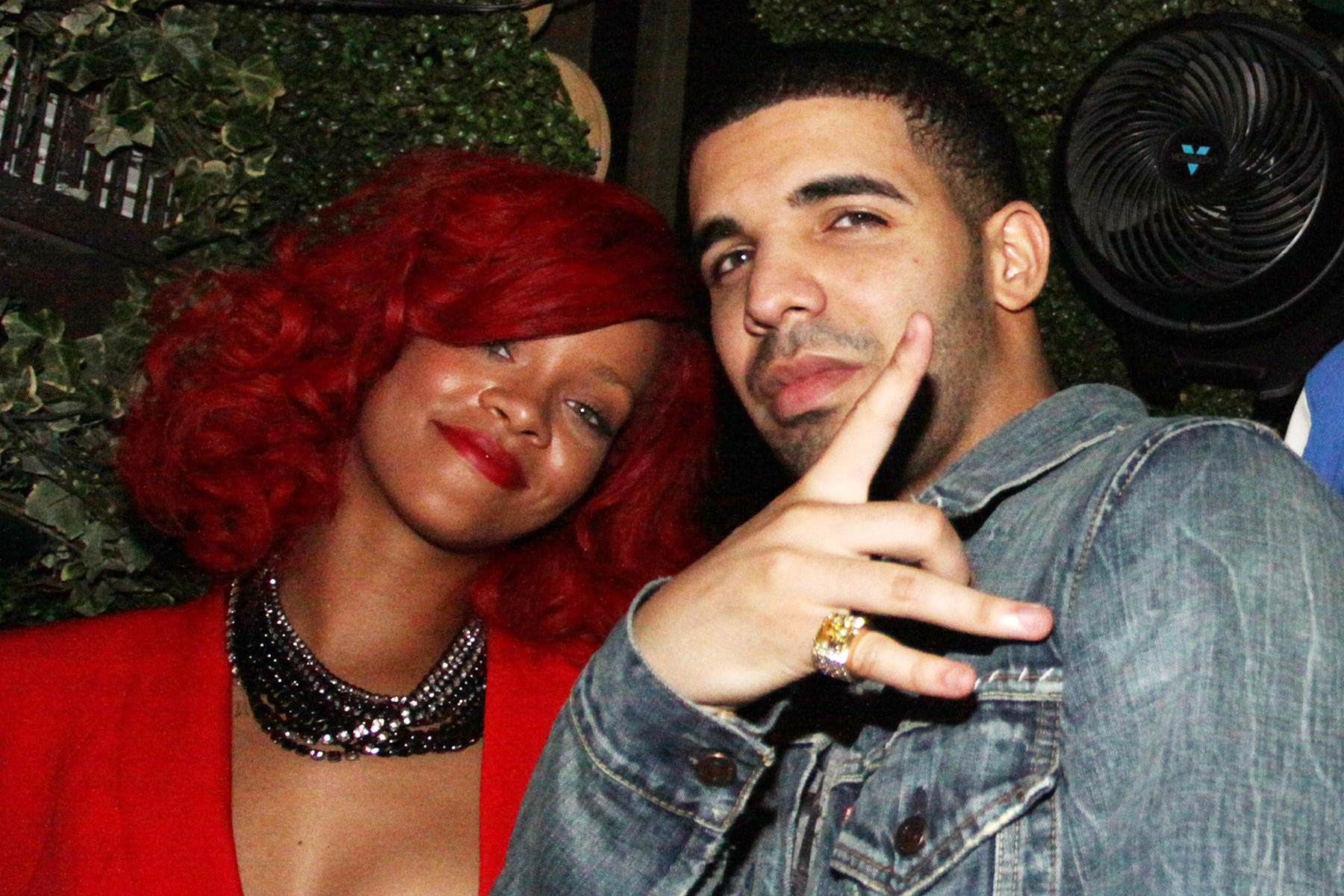 Rihanna and Drake at Drake's album release party
Rihanna and Drake at Drake's album release party
Image Credit: Johnny Nunez/WireImage
Rihanna’s on-again, off-again relationship with Drake has been a constant source of tabloid interest, further amplified by their collaboration on the Number One hit “What’s My Name?” Initially excluded from her 2009 album Rated R, the Stargate and Kuk Harrell-produced remix of the song, featuring Drake, was included on 2010’s Loud as Drake’s popularity surged. “Drake is the hottest rapper out right now and we’ve always been trying to work together,” Rihanna told Billboard. Drake’s verse, “Yeah, I heard you good with those soft lips/Yeah, you know word of mouth,” sparks a flirty back-and-forth with Rihanna’s response, “Not everybody knows how to work my body/Knows how to make me want it/But boy you stay up on it.” This playful flirtation has been a defining characteristic of their collaborations ever since.
Bitch Better Have My Money (2015)
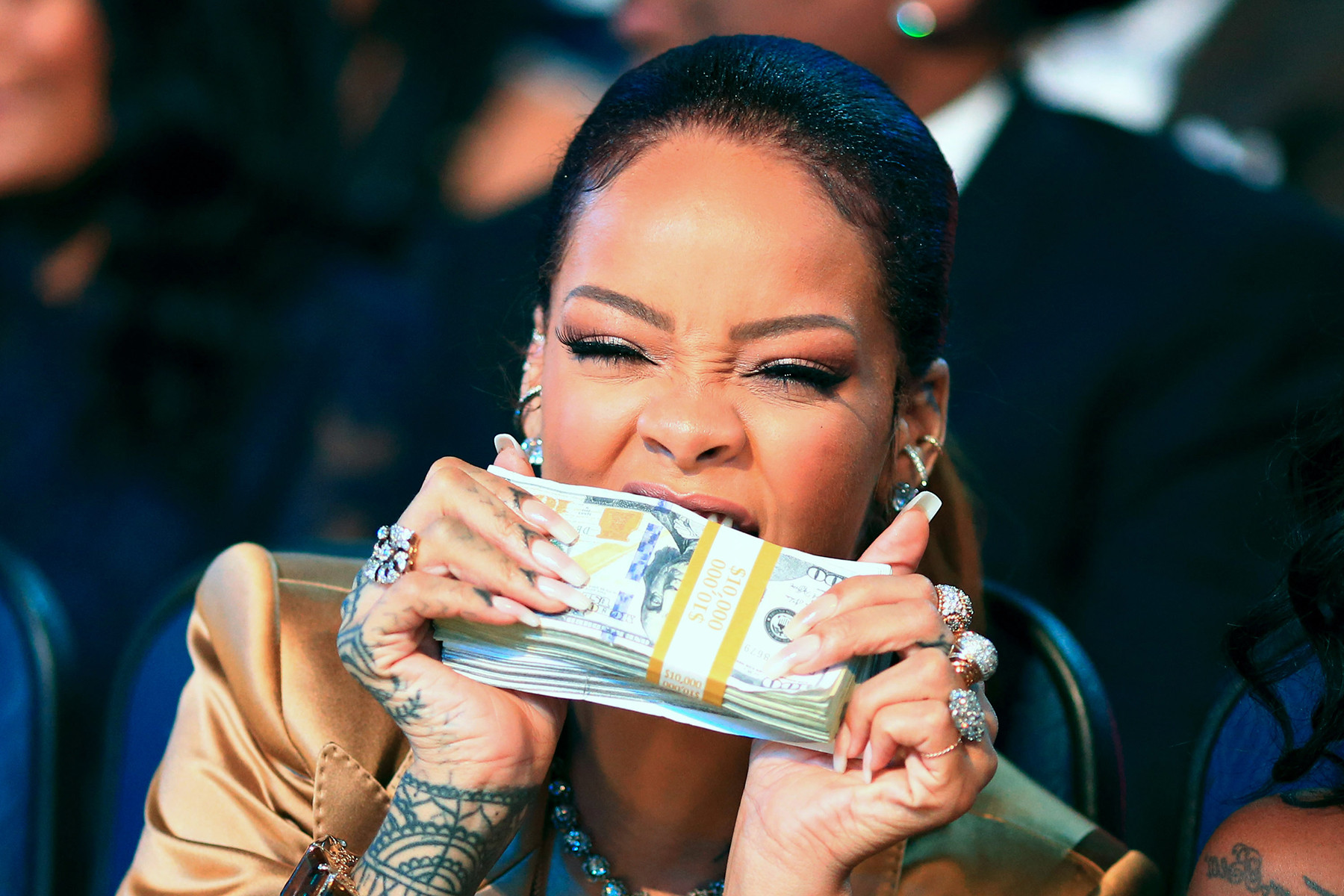 Rihanna at the BET Awards
Rihanna at the BET Awards
Image Credit: Christopher Polk/BET/Getty Images for BET
“Bitch Better Have My Money,” a non-album single, achieved moderate pop chart success, reaching Number 15 on the Hot 100. However, it became a massive anthem for Rihanna’s core R&B fans, reaffirming her cross-genre appeal and her ability to exude raw swagger. Bibi Bourelly, who conceived the song, told Noisey, “We were just vibing with [producer] Deputy in one of the local studios I record out of. He played me [the beat], I went in and started saying something like ‘Bitch Better Have My Money!’, because I was feeling ratchet that day.” Despite its somewhat controversial title, the song is a powerful statement of demanding respect and financial compensation, delivered with Rihanna’s signature unapologetic attitude.
SOS (2006)
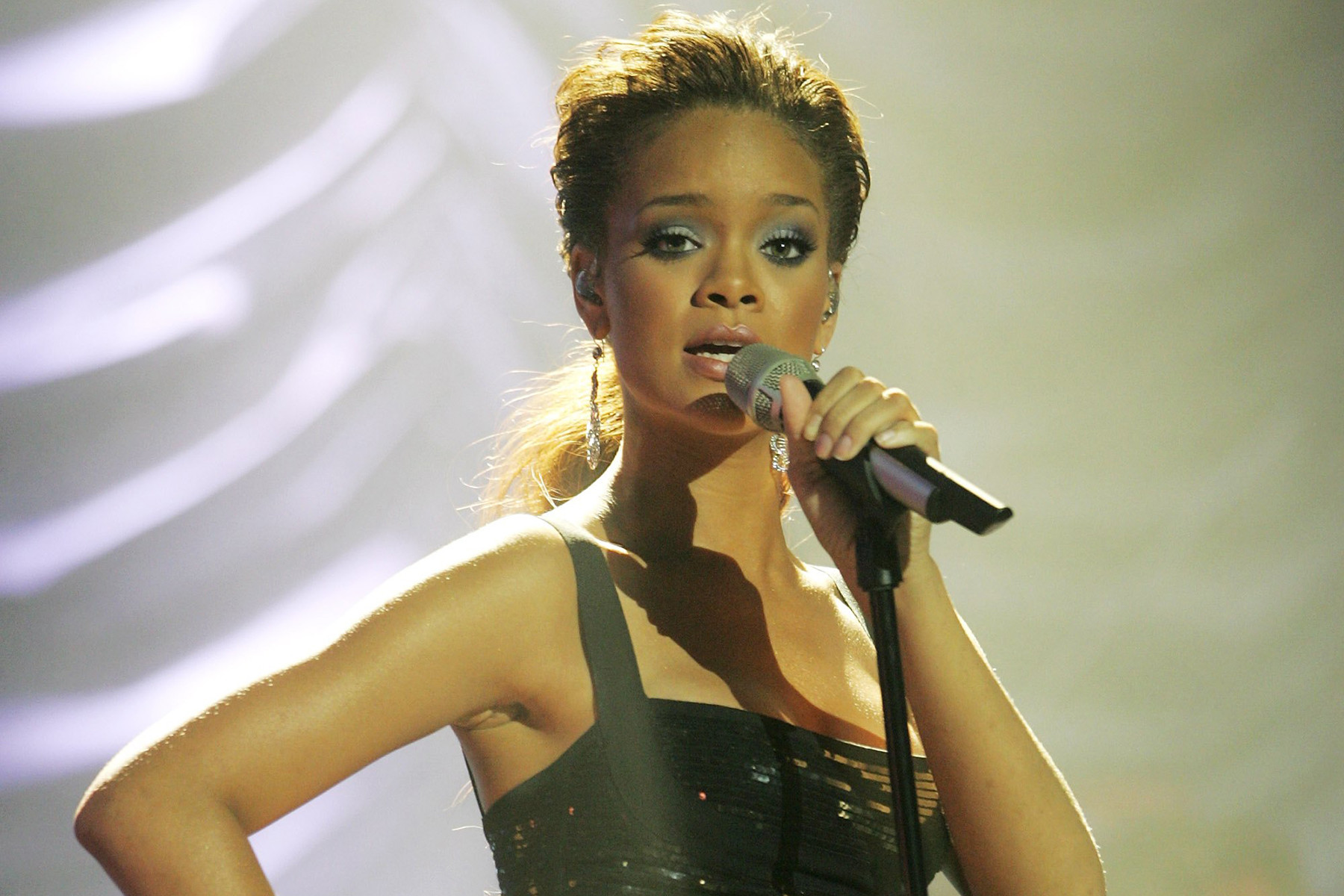 Rihanna performing at the MOBO Awards
Rihanna performing at the MOBO Awards
Image Credit: Dave Hogan/Getty Images
In 2006, Rihanna was still evolving from a teen pop starlet. Her initial singles, “Pon de Replay” and “If It’s Lovin’ That You Want,” and her debut album Music of the Sun were promising but not yet explosive. “SOS,” which samples “Tainted Love,” became her first Number One hit, offering a glimpse of her potential to dominate clubs with shimmering, catchy pop anthems. This dance-pop smash signaled Rihanna’s transition into a major pop force, setting the stage for her future chart-topping successes.
Work (feat. Drake) (2016)
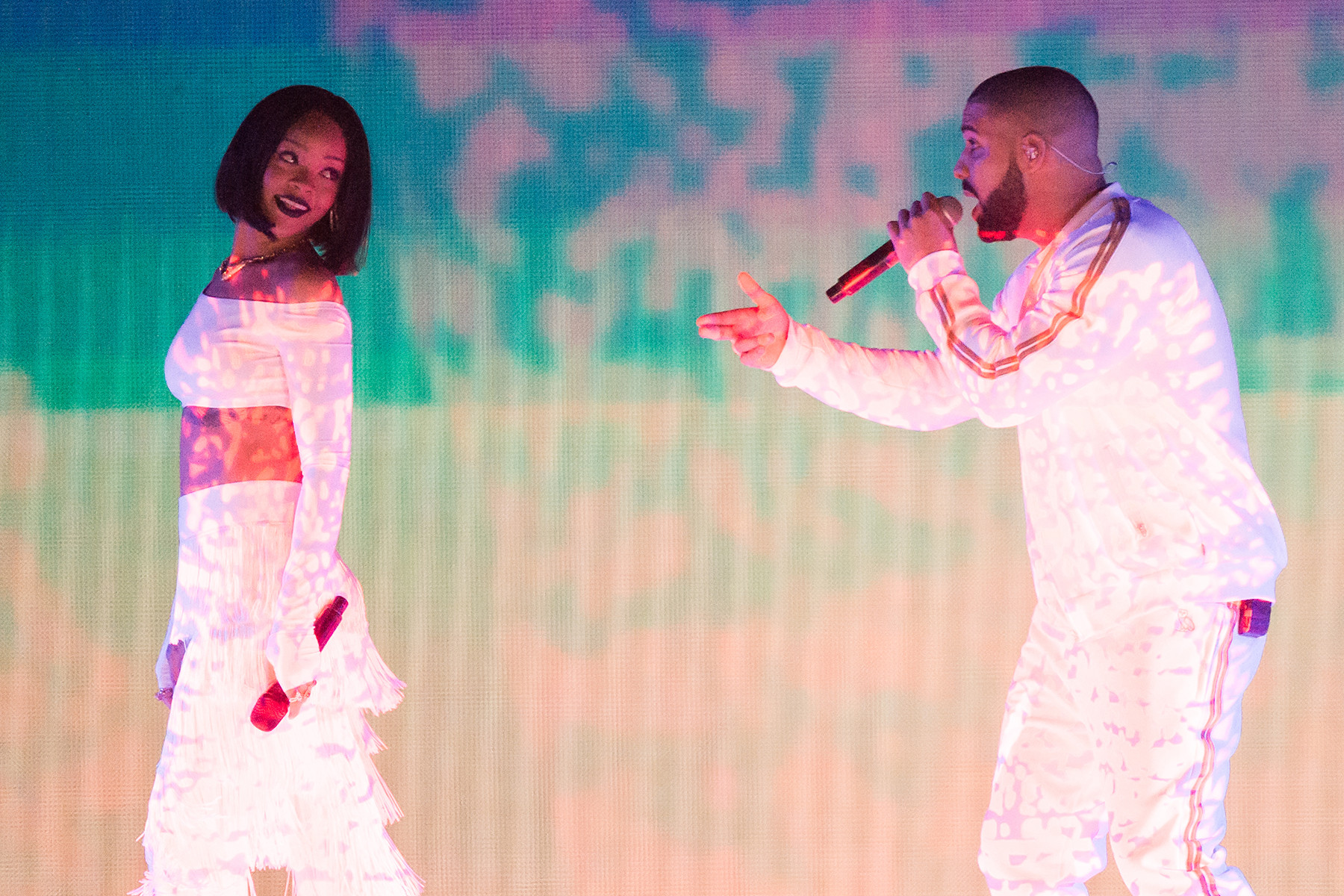 Rihanna and Drake performing Work at the BRIT Awards
Rihanna and Drake performing Work at the BRIT Awards
Image Credit: Samir Hussein/Redferns/Getty Images
In 2016, Caribbean music experienced a resurgence in mainstream popularity in America, and Rihanna was at the forefront of this trend. Her and Drake’s dancehall-infused track “Work” became one of the year’s defining songs. “This song is definitely a song that represents my culture, so I had to put a little twist on my delivery,” Rihanna told Vogue, explaining her unique vocal style on the chorus. “Because I felt like if I enunciated the words too perfectly, it would just not be the same attitude or the same sass. Because that’s how we speak in the Caribbean.” Despite its hypnotic and sensual vibe, the lyrics, written by Partynextdoor, depict a woman exhausted from the effort she invests in a relationship. “People think that’s a party song. It’s a breakup song,” Partynextdoor told RS. “It’s blues. I went from braggadocious to blues.”
Stay (feat. Mikky Ekko) (2012)
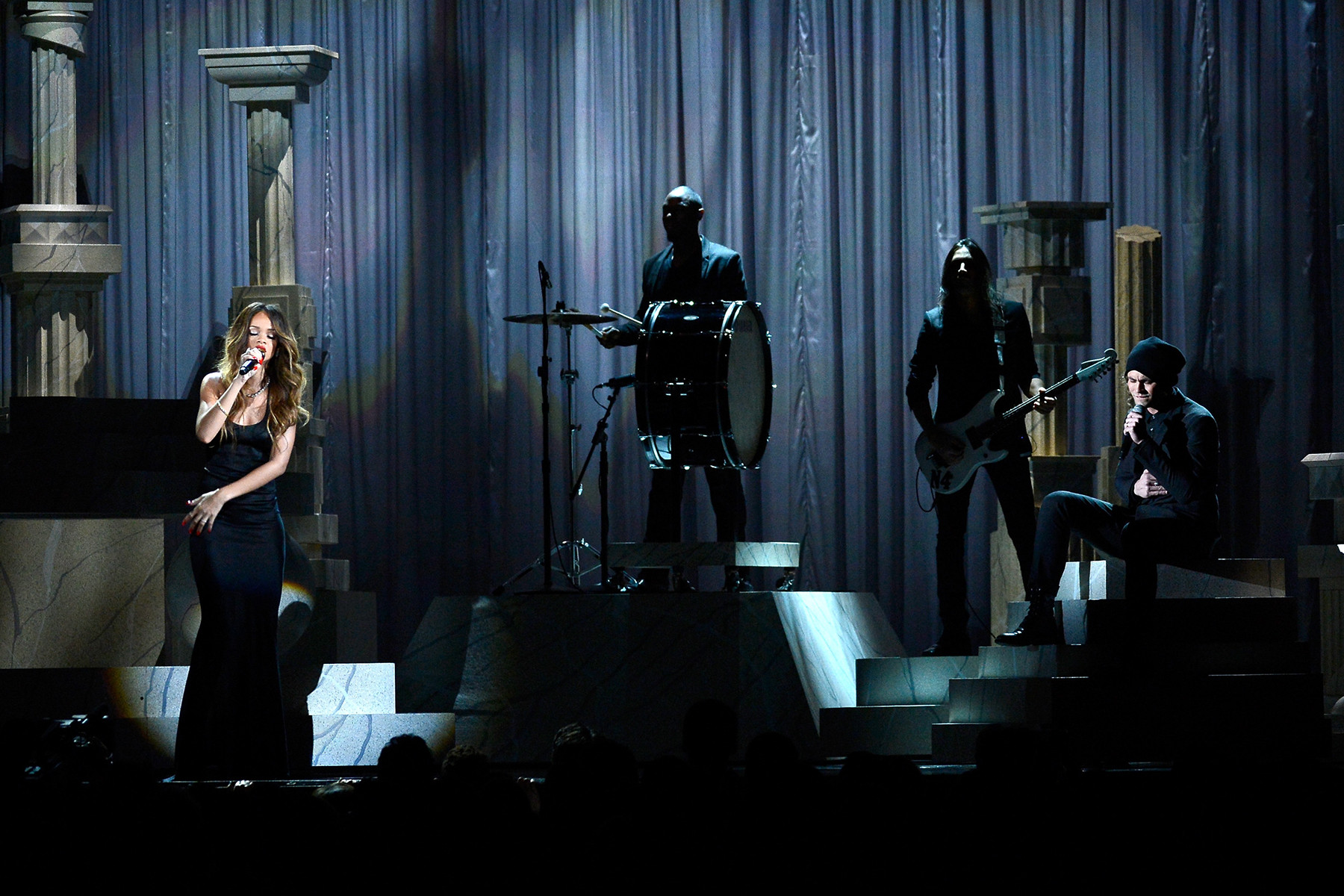 Rihanna and Mikky Ekko performing Stay at the Grammy Awards
Rihanna and Mikky Ekko performing Stay at the Grammy Awards
Image Credit: Kevork Djansezian/Getty Images
By the time Rihanna released Unapologetic, ballads were familiar territory for her. However, “Stay,” a piano-driven display of raw vulnerability, stands out as one of her most emotionally resonant performances. Newcomer Mikky Ekko serves as the perfect duet partner, complementing Rihanna’s vocals as they explore the complexities of a relationship on the brink. Co-written by Justin Parker, known for Lana Del Rey’s melancholic ballads, “Stay” finds strength in its simplicity, paving the way for the stripped-down sound of her subsequent album, Anti.
This Is What You Came For (with Calvin Harris) (2016)
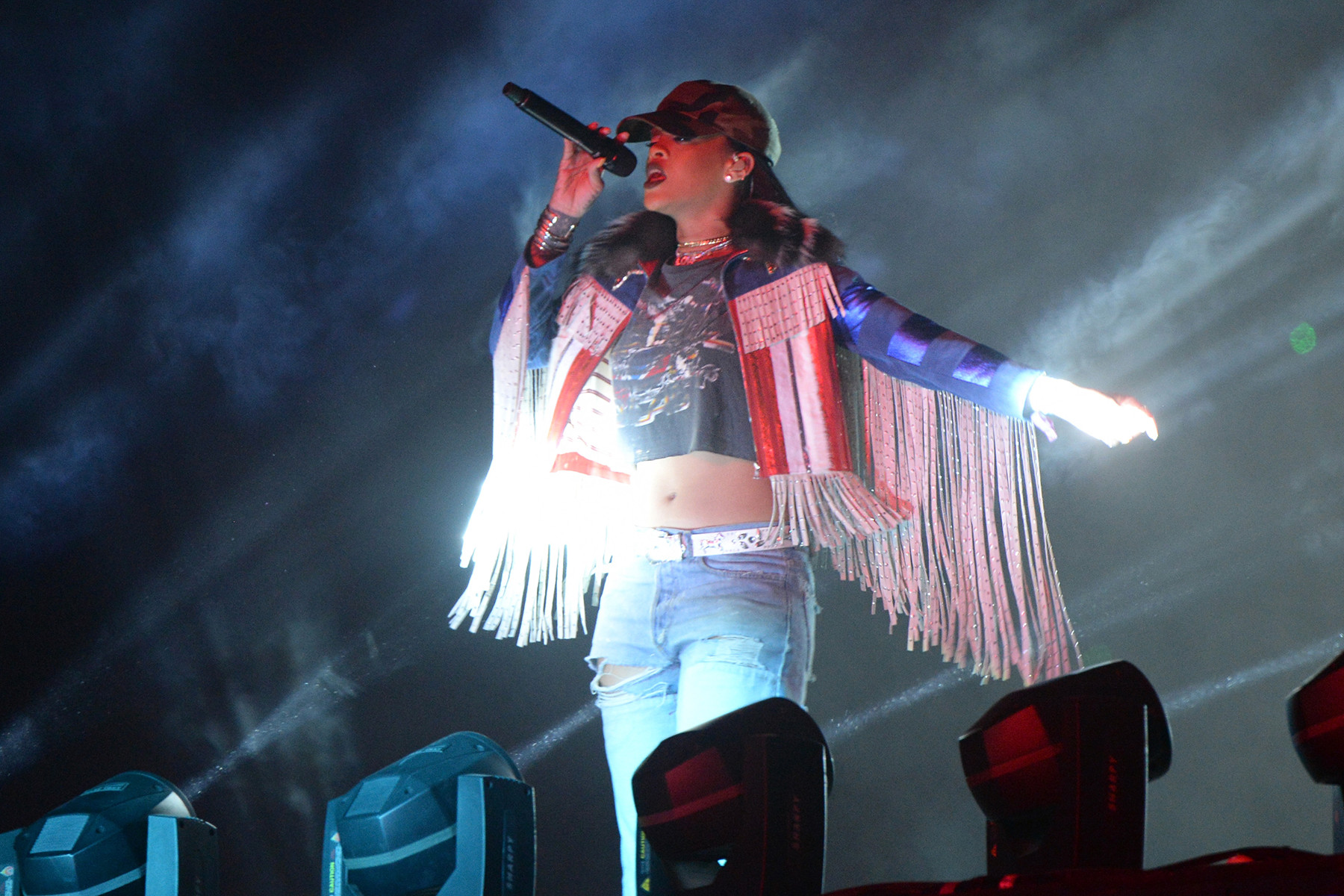 Rihanna performing with Calvin Harris at Coachella
Rihanna performing with Calvin Harris at Coachella
Image Credit: Kevin Mazur/Getty Images for Coachella
“This Is What You Came For” represents the closest we’ve come to a Rihanna-Taylor Swift crossover. The third collaboration between Rihanna and Calvin Harris, following “We Found Love,” is a more understated effort, featuring softer vocals and a blend of EDM, tropical, and Chicago house elements. Harris, admittedly “nervous,” played the final version for Rihanna at Coachella 2016, stating, “I changed so many bits from when she first heard it. She was into it.” The song became entangled in Harris’s public feud with ex-girlfriend Taylor Swift when it was revealed that Swift co-wrote the song under the pseudonym Nils Sjöberg. Despite the drama, “This Is What You Came For” remains a blissful and infectious earworm.
All of the Lights (with Kanye West, Kid Cudi) (2010)
 Rihanna and Kanye West performing at the NBA All-Star Game halftime show
Rihanna and Kanye West performing at the NBA All-Star Game halftime show
Image Credit: Robyn Beck/AFP/Getty Images
Kanye West’s ambitious My Beautiful Dark Twisted Fantasy track “All of the Lights” features a star-studded choir including Elton John, John Legend, and Drake. However, Rihanna is the only featured vocalist, thanks to her captivating performance of the song’s anthemic chorus. Her involvement stemmed from a late-night studio invitation from Kanye. “[Kanye] actually played his album to me, like, three months ago, and ‘All of the Lights,’ that was one of my favorite songs,” Rihanna told MTV in 2010. “So when he asked me to come up to the studio at 2 o’clock in the morning, I had to, because I loved it. I knew it was that song.”
Needed Me (2016)
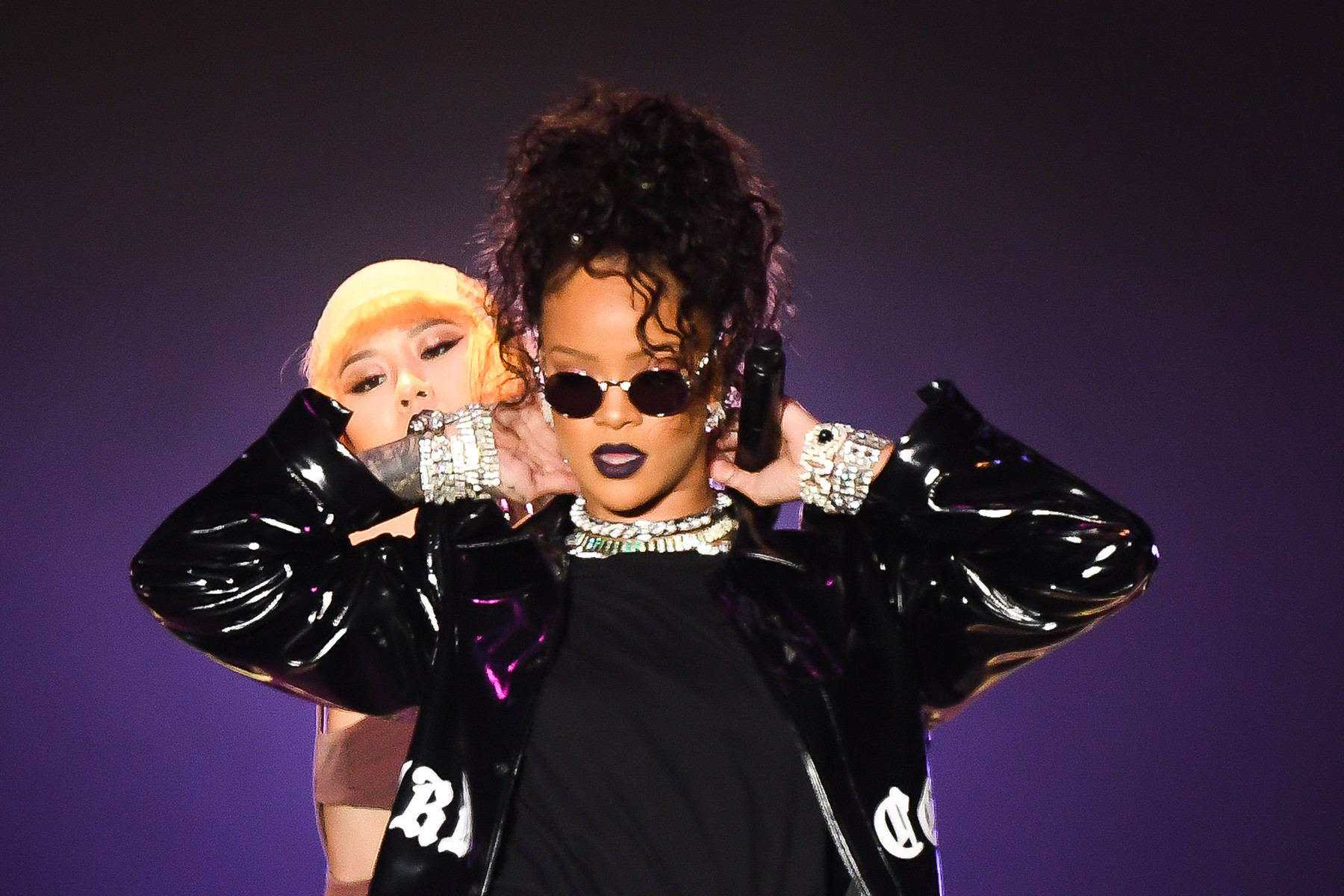 Rihanna performing Needed Me at V Festival
Rihanna performing Needed Me at V Festival
Image Credit: Samir Hussein/Redferns
“Needed Me” solidified Rihanna’s no-nonsense attitude towards relationships, presenting her as a ruthless and detached figure. She mocks a former lover for falling in love with her, singing, “trying to fix your inner issues with a bad bitch.” Set against a hard West Coast hip-hop beat produced by DJ Mustard, Rihanna delivers lines like, “Didn’t they tell you I was a savage?/Fuck your white horse and your carriage.” Harmony Korine directed the controversial video, where Rihanna confronts a man in a strip club who has wronged her. He offers money, she responds with bullets. “Needed Me” is a definitive anthem of female empowerment and unapologetic independence.
Don’t Stop the Music (2007)
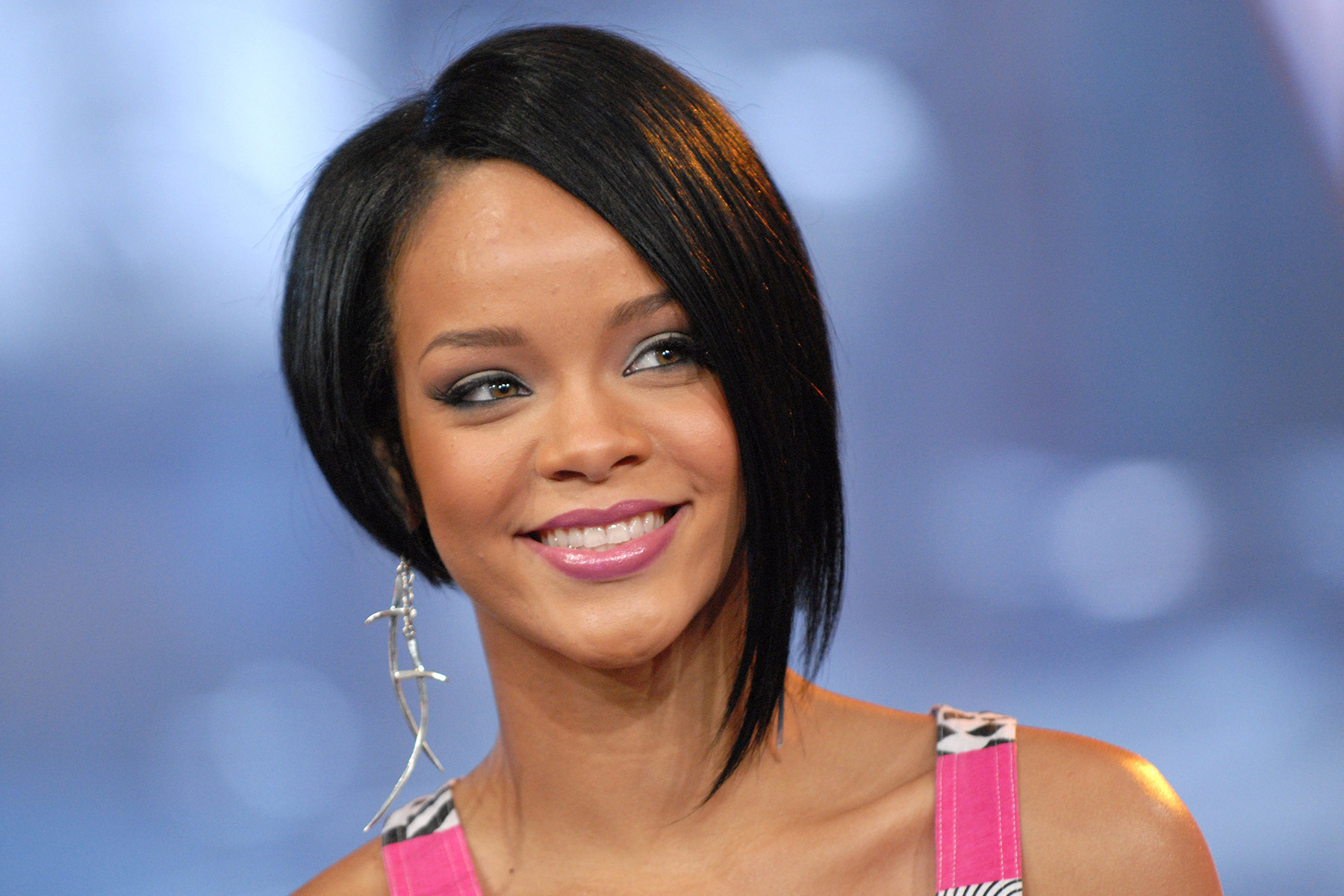 Rihanna during a visit to MTV's TRL
Rihanna during a visit to MTV's TRL
Image Credit: Jason Kempin/FilmMagic
“Don’t Stop the Music” is a global dance-pop phenomenon produced by Stargate. It cleverly samples the iconic vocal line from Michael Jackson’s “Wanna Be Startin’ Somethin’,” which itself was inspired by Manu Dibango’s “Soul Makossa.” This song perfectly embodies Rihanna’s ability to blend global influences into her music, creating a vision of pure disco euphoria. After obtaining Jackson’s permission to use the “Mama-say, mama-sa, ma-ma-ko-ssa” hook, “Don’t Stop the Music” became a massive hit, accompanied by a video where Rihanna escapes into a secret club to dance away her stress.
Pon de Replay (2005)
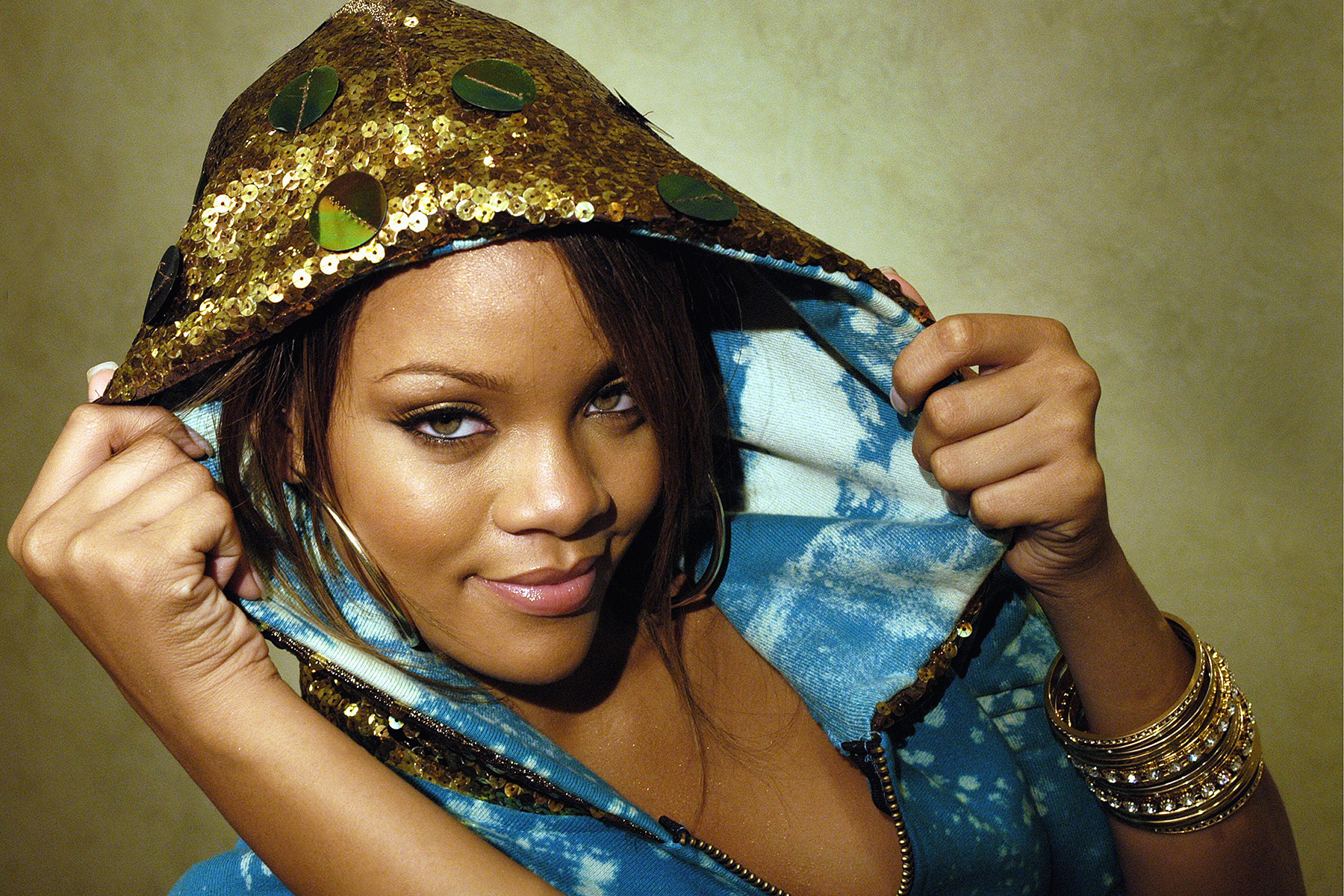 Rihanna performing Pon de Replay early in her career
Rihanna performing Pon de Replay early in her career
Image Credit: Rob Verhorst/Redferns/Getty Images
Rihanna’s debut single, “Pon de Replay,” introduced her as part of a Caribbean-infused pop wave in 2005. While it shared similarities with other tracks of the time, “Pon de Replay” hinted at Rihanna’s potential to surpass her contemporaries. Originating as a demo that secured her deal with Def Jam, the song showcased her distinctively bright and confident voice. Her unique tone was already evident, setting her apart. In 2005, she told MTV News, “I can’t tell you where I’ll see myself in five years, but I can tell you I will work my best to be the most successful artist that I can be.” “Pon de Replay” was the starting point of Rihanna’s incredible journey to global superstardom.
Love the Way You Lie (with Eminem) (2010)
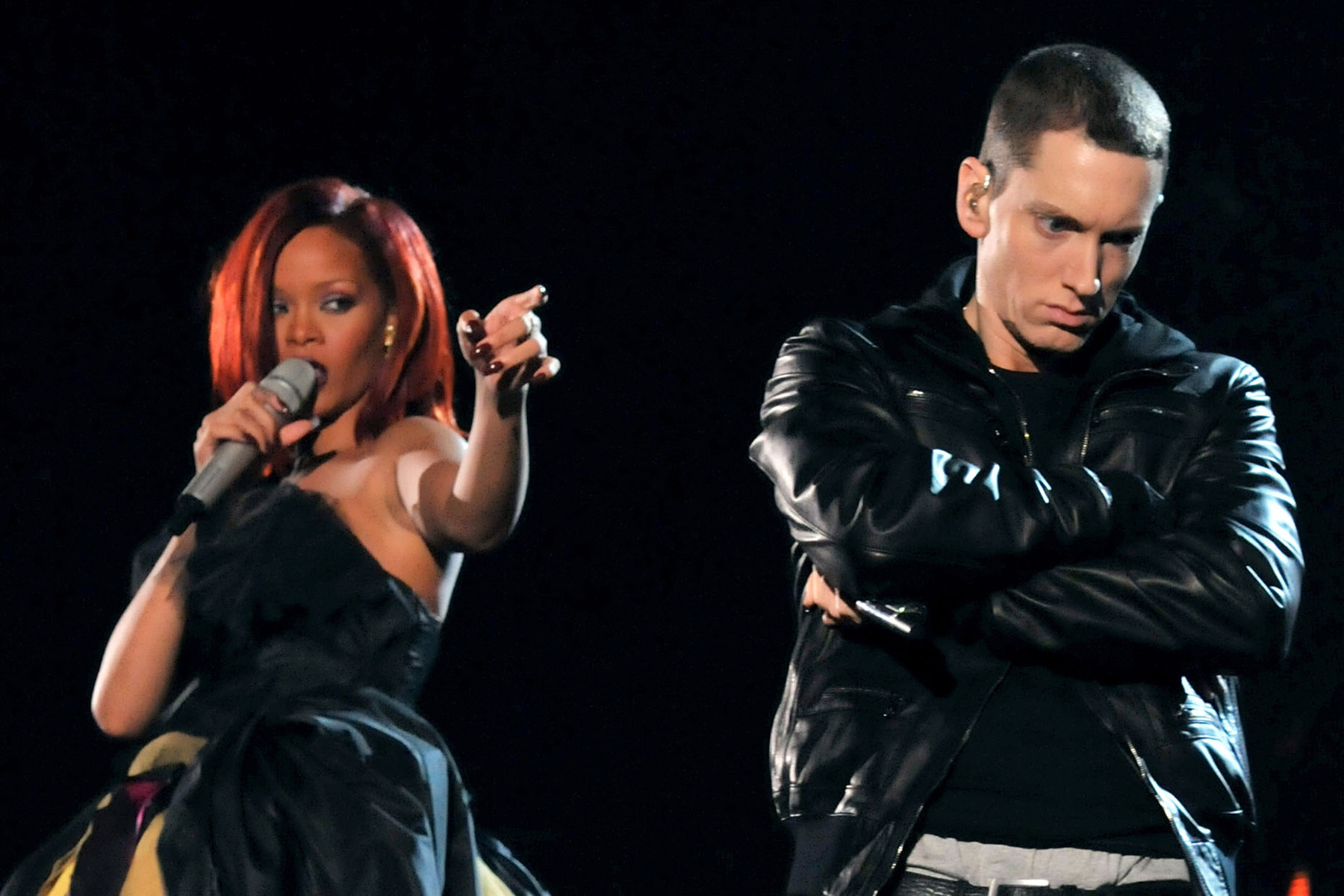 Rihanna and Eminem performing Love The Way You Lie at the Grammy Awards
Rihanna and Eminem performing Love The Way You Lie at the Grammy Awards
Image Credit: Lester Cohen/WireImage
Rihanna had addressed her tumultuous relationship with Chris Brown in her music before, but her collaboration with Eminem, “Love the Way You Lie,” became her most impactful statement on the subject. Detailing the cycle of abuse and reconciliation in toxic relationships, Eminem and Rihanna deliver powerful performances as lovers caught in a destructive pattern. Rihanna later released a solo version, “Love the Way You Lie (Part II),” offering an even more vulnerable perspective on the song’s message. “Love the Way You Lie” became a cultural phenomenon, sparking crucial conversations about domestic violence.
Only Girl (in the World) (2010)
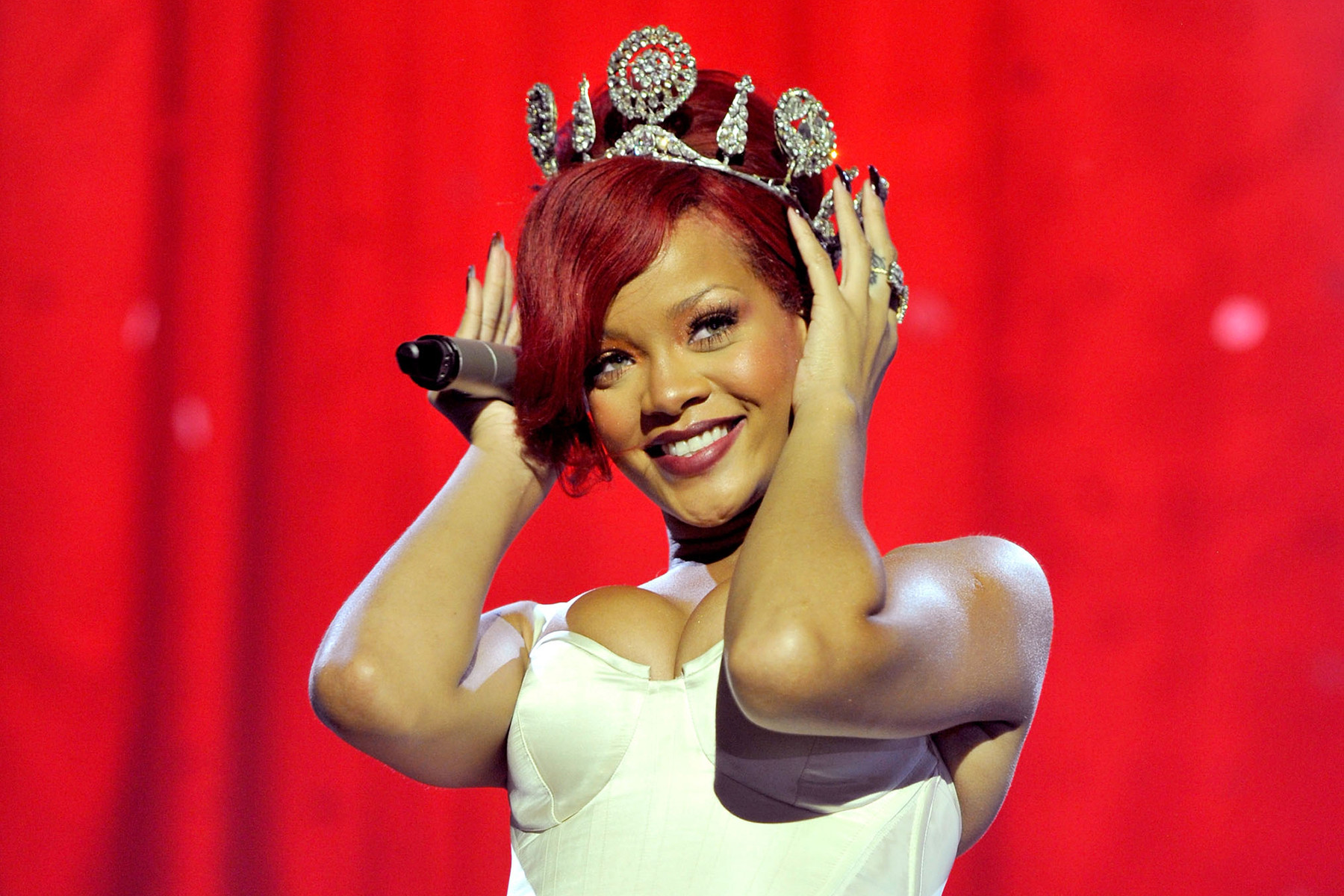 Rihanna performing Only Girl (In The World) at the MTV Europe Music Awards
Rihanna performing Only Girl (In The World) at the MTV Europe Music Awards
Image Credit: Kevin Mazur/WireImage
“Only Girl (in the World)” was one of four Number One hits Rihanna achieved in 2010, alongside “Rude Boy,” “What’s My Name,” and Eminem’s “Love the Way You Lie.” Produced by StarGate, Sandy Vee, and Kuk Harrell, this Europop anthem, with its soaring keyboard lines and progressive house beat, cemented Rihanna’s status as the queen of the EDM era. She pushes her vocal range to match the expansive production, depicting an intoxicating nightlife scene. While the song is undeniably a club banger, Rihanna’s distinct Barbadian accent and personality shine through, preventing her from becoming just another anonymous club vocalist.
Diamonds (2012)
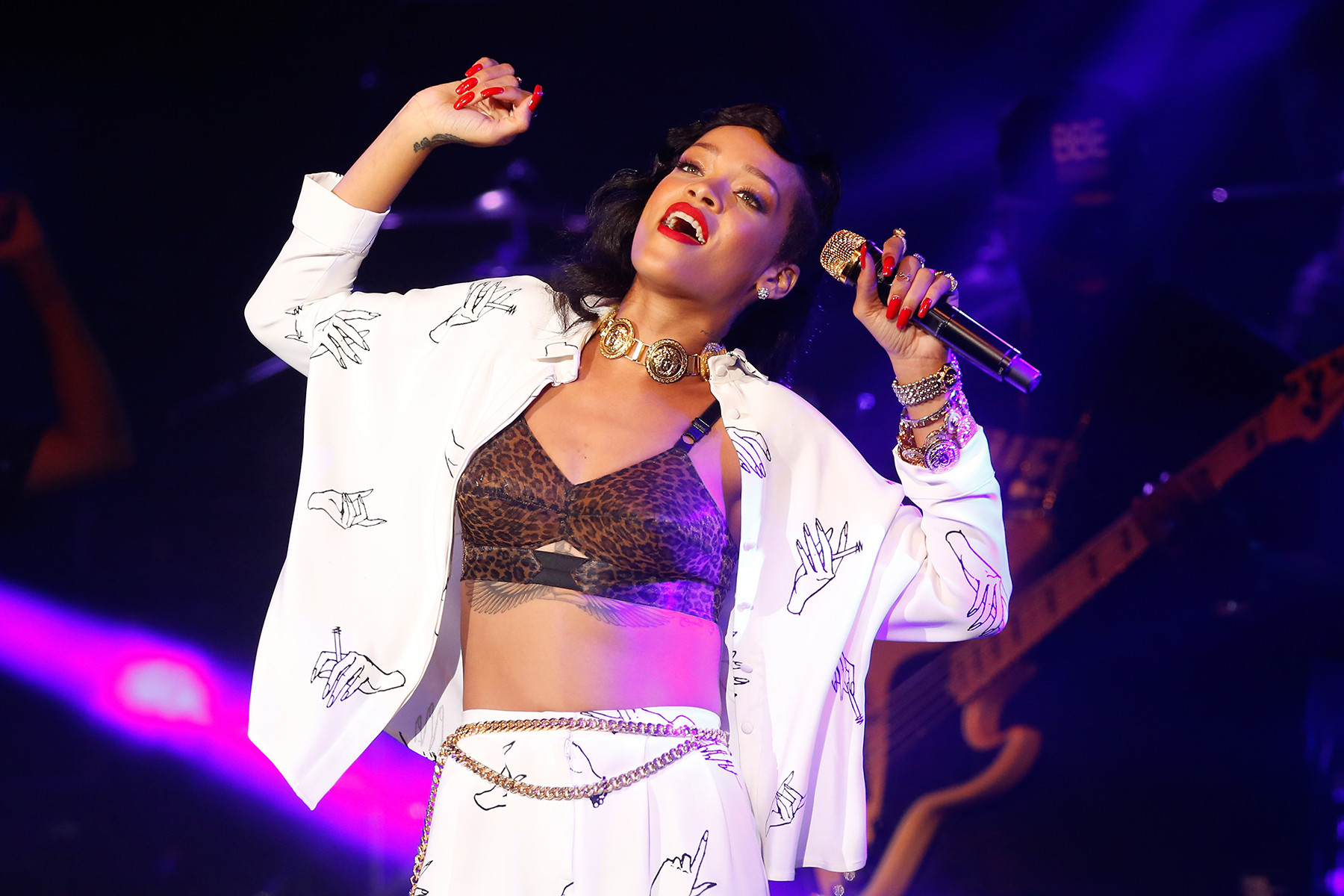 Rihanna performing Diamonds during her 777 tour in London
Rihanna performing Diamonds during her 777 tour in London
Image Credit: Simone Joyner/WireImage
Rihanna’s greatest strength lies in her adaptability. She effortlessly navigates EDM, R&B, and rap genres, making each song distinctly her own. Following a string of club hits, she shifted gears with “Diamonds,” a lush, Sia-penned power ballad. This track, her 12th Number One single, showcased Rihanna’s often-underrated vocal abilities, which had sometimes been overshadowed by elaborate EDM production. “Diamonds” remains one of her most inspiring and uplifting hits, demonstrating her range and versatility as an artist.
FourFiveSeconds (with Paul McCartney, Kanye West) (2015)
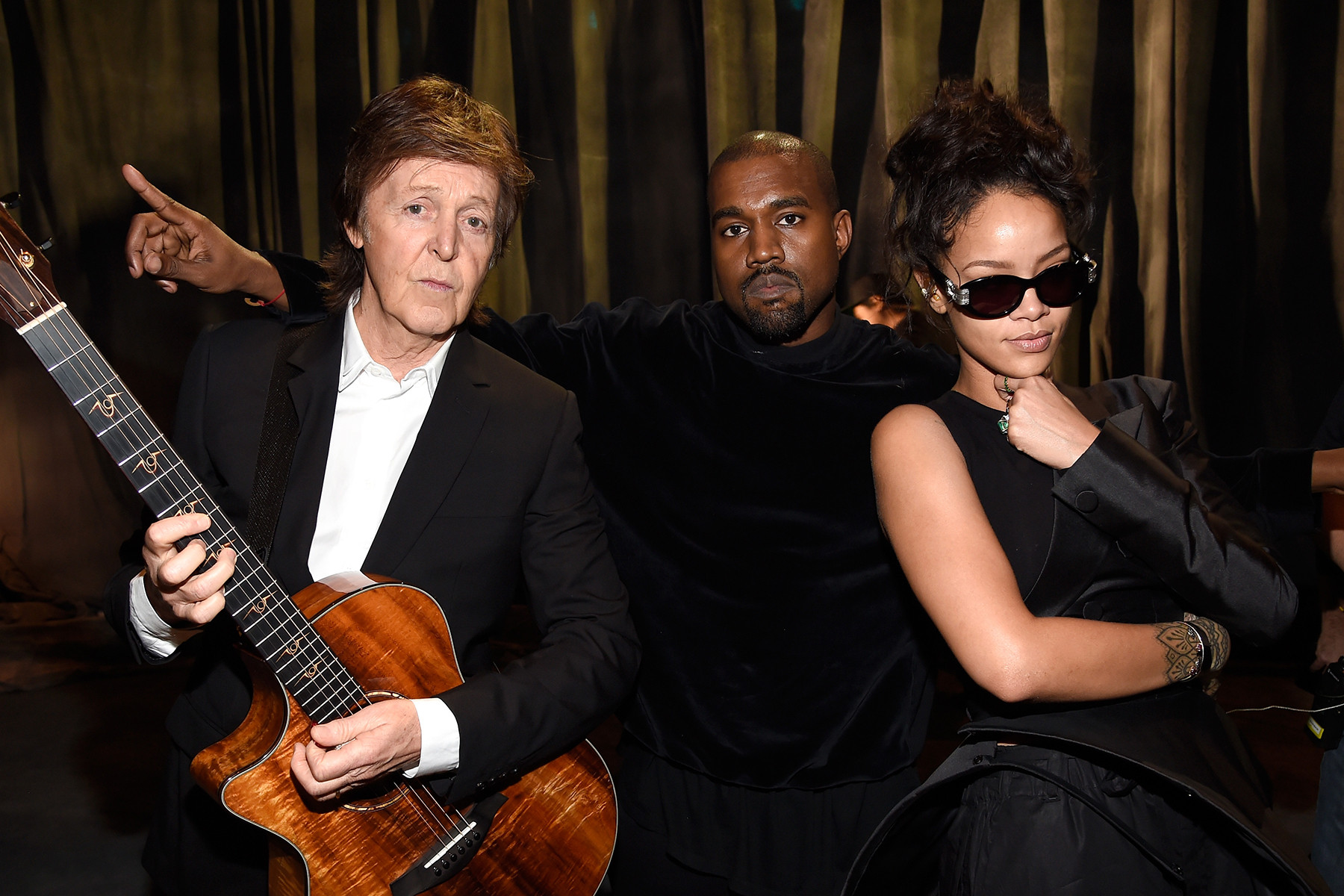 Paul McCartney, Kanye West, and Rihanna at the Grammy Awards
Paul McCartney, Kanye West, and Rihanna at the Grammy Awards
Image Credit: Kevin Mazur/WireImage
Paul McCartney famously collaborated with Michael Jackson in the 80s on “Say Say Say,” introducing himself to a new generation of fans. He replicated this cross-generational appeal in 2015 with “FourFiveSeconds,” a collaboration with Rihanna and Kanye West. Spearheaded by Kanye, who was working with Rihanna on Anti and had developed a friendship with McCartney, “FourFiveSeconds” is built around McCartney’s acoustic guitar riff. Unlike anything in either artist’s catalog, it gave the former Beatle his first Top Five hit in 31 years and remains a staple in his solo performances.
Love on the Brain (2016)
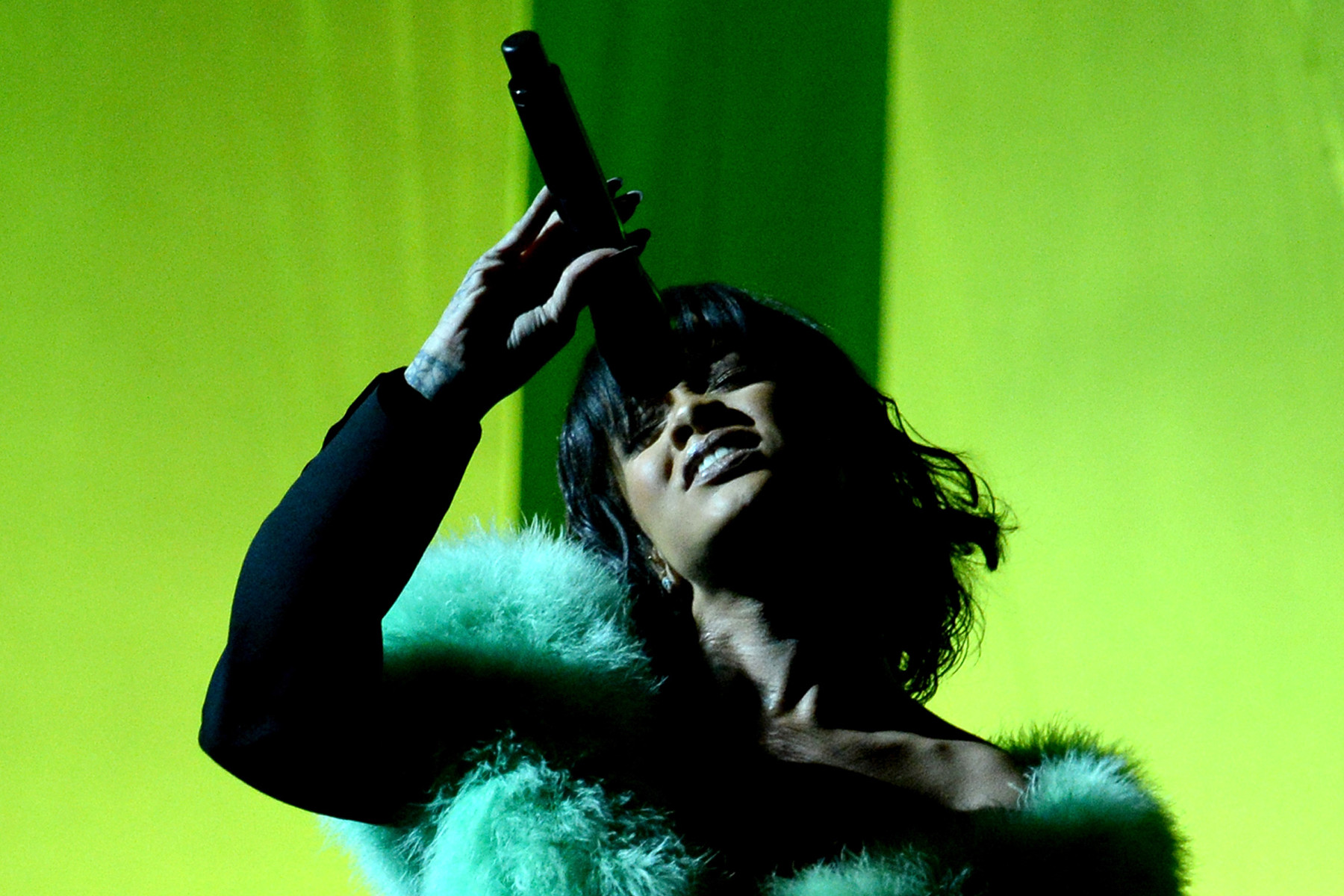 Rihanna performing Love on the Brain at the Billboard Music Awards
Rihanna performing Love on the Brain at the Billboard Music Awards
Image Credit: Kevin Winter/Getty Images
“I think a lot of people have a misperception of me,” Rihanna told Kanye West in a 2010 Interview conversation. “They only see the tough, defensive, aggressive side. But every woman is vulnerable. They have vulnerability. So of course I’m going to have that side.” Anti showcased Rihanna at her most vulnerable, with “Love on the Brain” being a standout example. This neo-classic soul track features Rihanna alternating between her falsetto and torch-singer range over a slow-dance arrangement. Co-writer Fred Ball told Genius, “We wanted the song to be old school – a mix between Prince and Al Green… We wanted it to have that juxtaposition of an old-school soul feel with modern lyrics.” Though not initially written for Rihanna, “Love on the Brain” perfectly captured the tender side of Anti.
Umbrella (feat. Jay-Z) (2007)
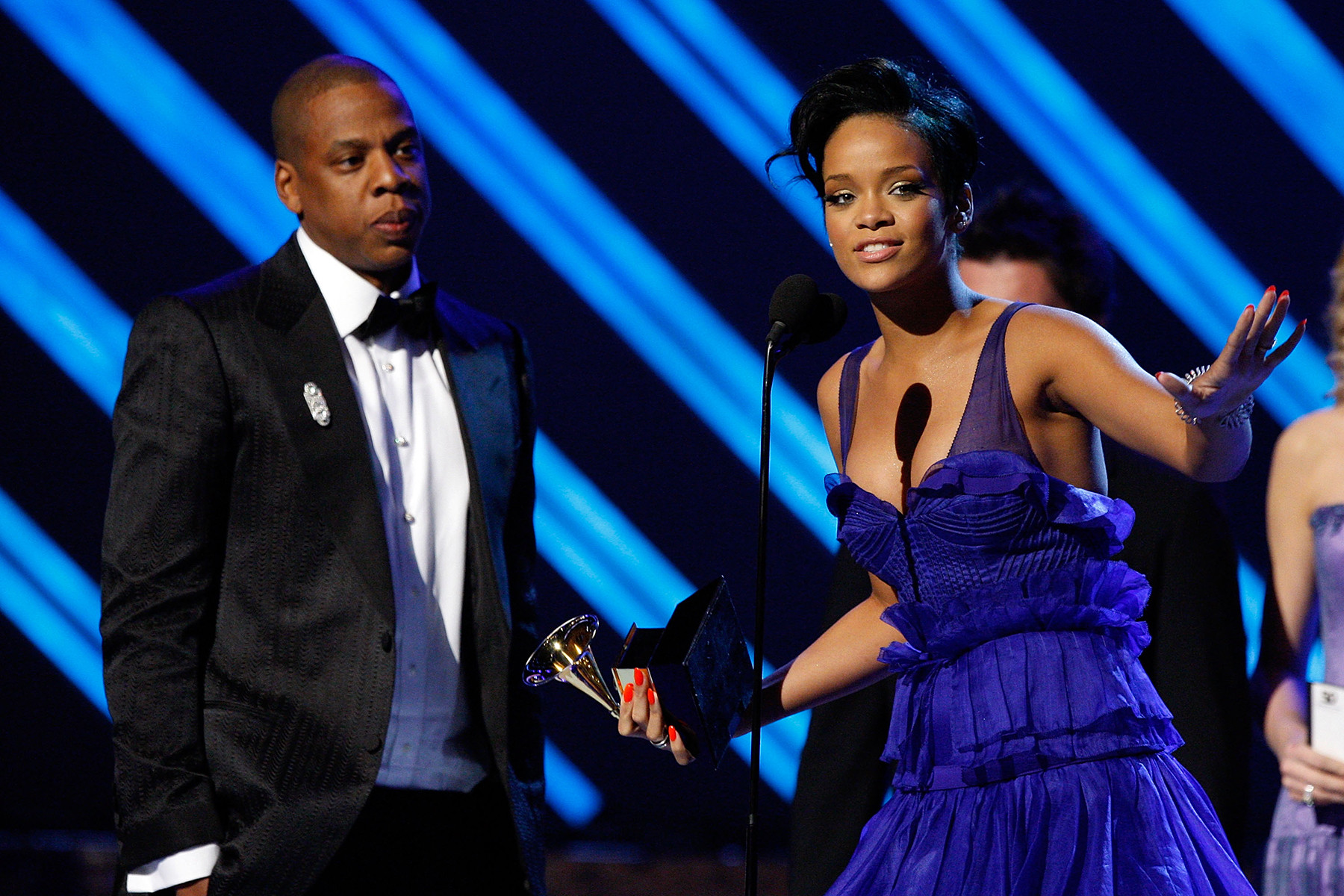 Jay-Z and Rihanna accepting the Grammy Award for Umbrella
Jay-Z and Rihanna accepting the Grammy Award for Umbrella
Image Credit: Kevin Winter/Getty Images
Ironically, Britney Spears’ label turned down “Umbrella,” the song that would catapult Rihanna to global superstardom. Co-written by Tricky Stewart, Kuk Harrell, and The-Dream, “Umbrella” is a unique blend of heavy rock undertones, vibrant rhythm guitar, and a perfectly catchy R&B-pop hook. It earned Rihanna her first Grammy Award and topped charts worldwide, but not without some quirky consequences. Rumors of a “Rihanna curse” circulated as the U.K., New Zealand, and Romania experienced severe storms shortly after the single reached Number One in each country. “Umbrella” marked a turning point in Rihanna’s career, solidifying her as a pop icon.
We Found Love (feat. Calvin Harris) (2010)
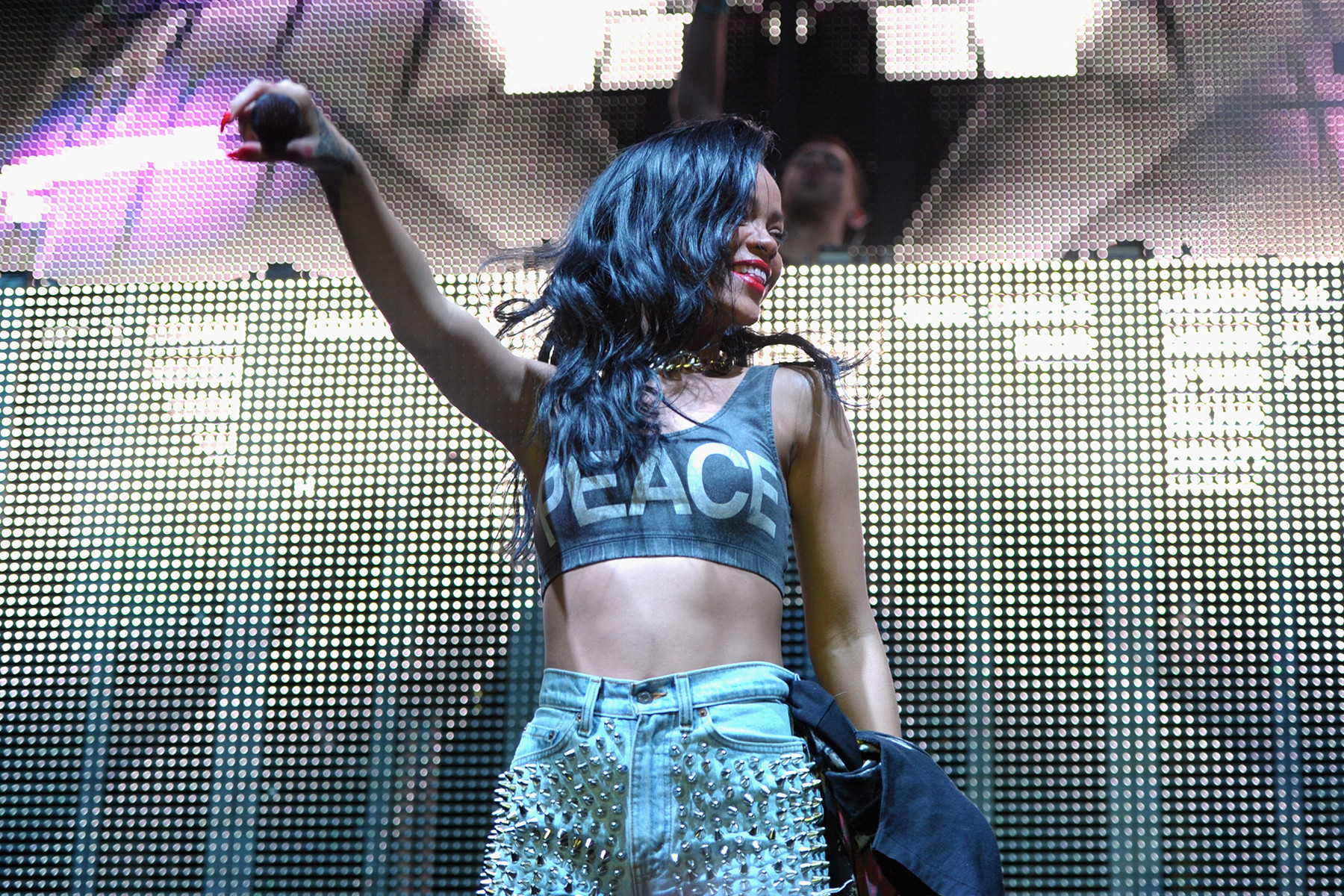 Rihanna performing with Calvin Harris at Coachella
Rihanna performing with Calvin Harris at Coachella
Image Credit: John Shearer/WireImage
Calvin Harris’s original demo for “We Found Love” circulated for months before Rihanna transformed it into a global phenomenon. Leona Lewis recorded a version but didn’t release it, and Nicole Scherzinger rejected it before Rihanna claimed it. “I slept on it,” Scherzinger admitted to Notion magazine. However, Rihanna’s vibrant energy and near-falsetto vocals brought a unique joie de vivre to this big-room EDM track, making it irresistible. The chorus, “We found love in a hopeless place,” was visually interpreted in Melina Matsuoka’s controversial video, depicting Rihanna in a tumultuous and toxic relationship. “We Found Love” became a defining anthem of the early 2010s EDM boom, largely thanks to Rihanna’s captivating performance.

